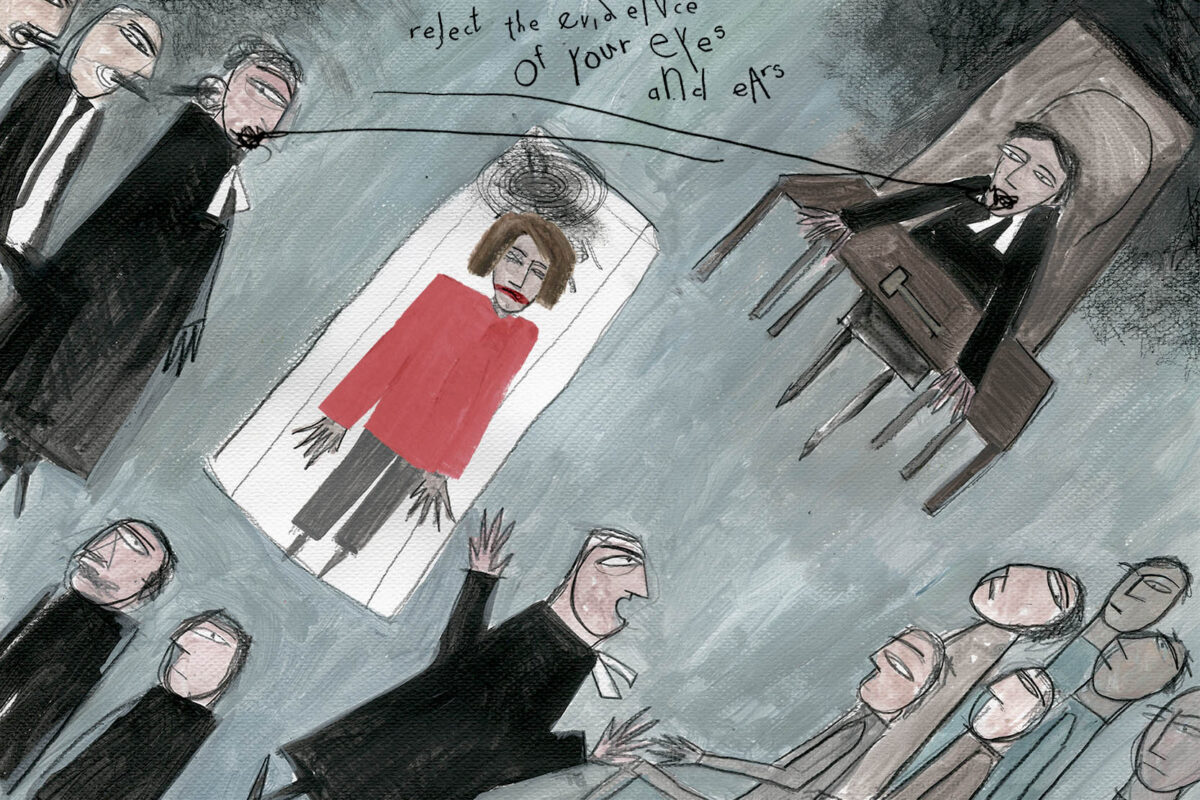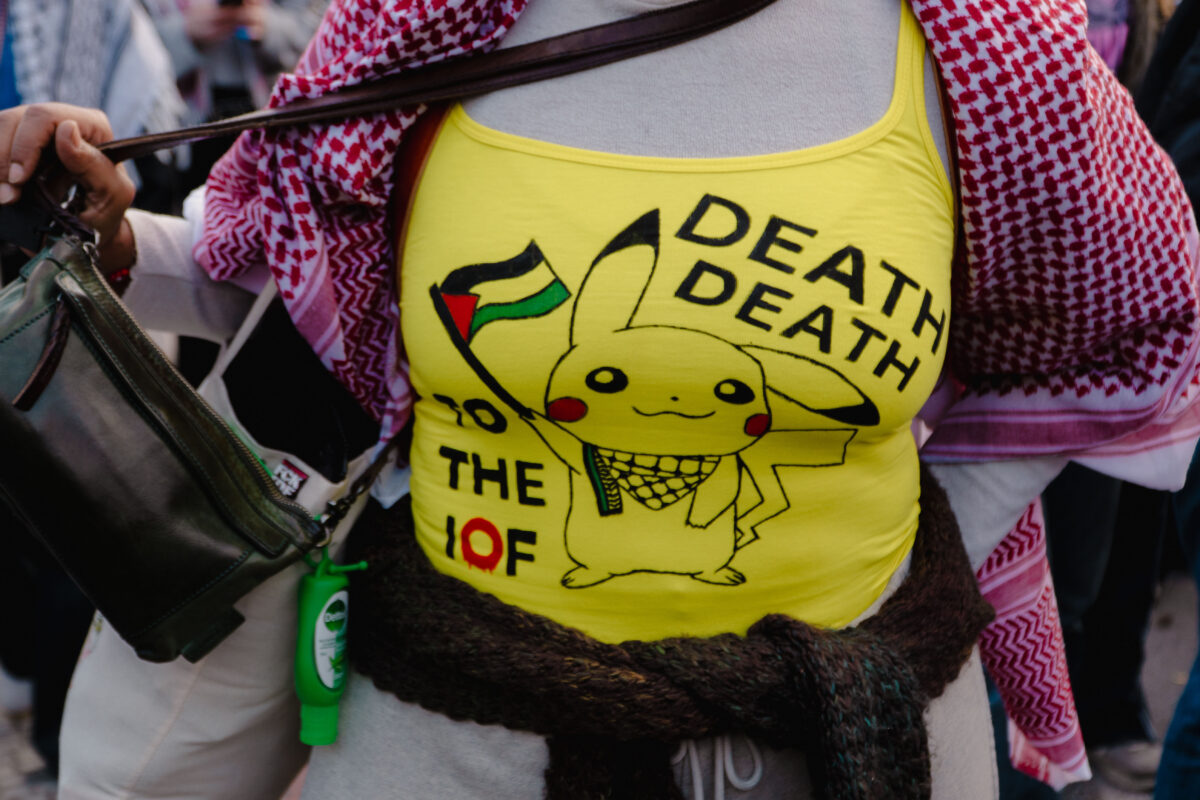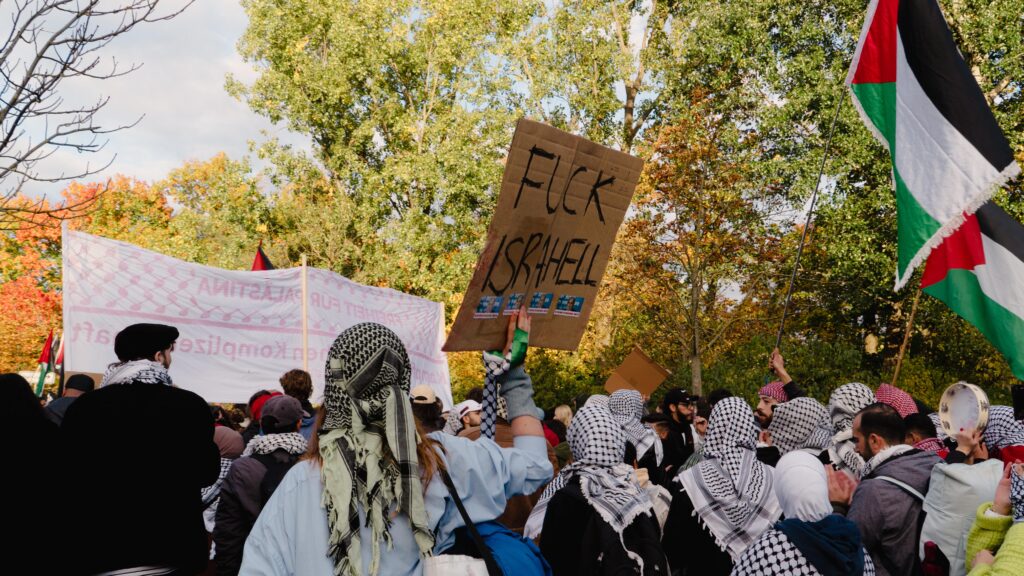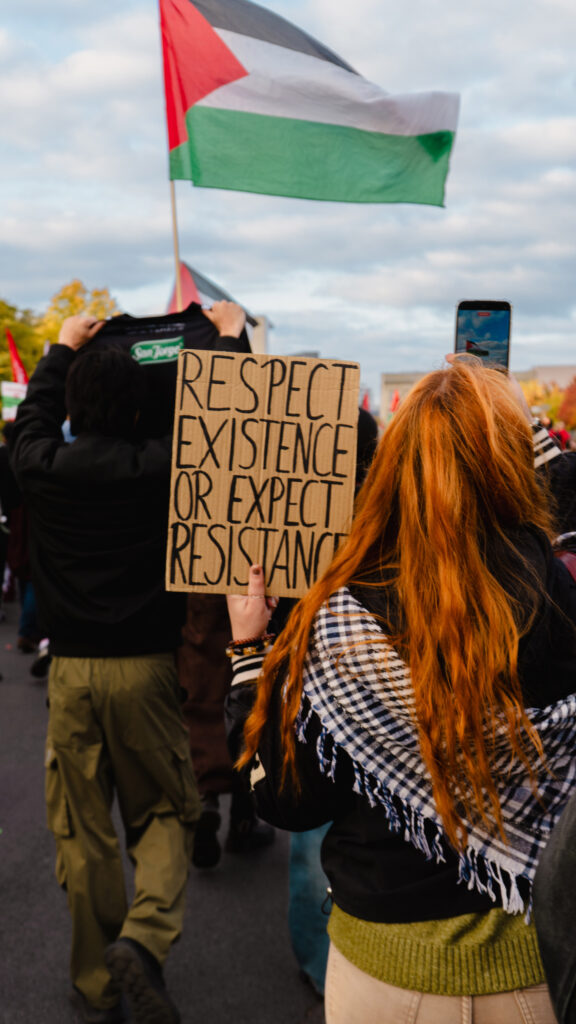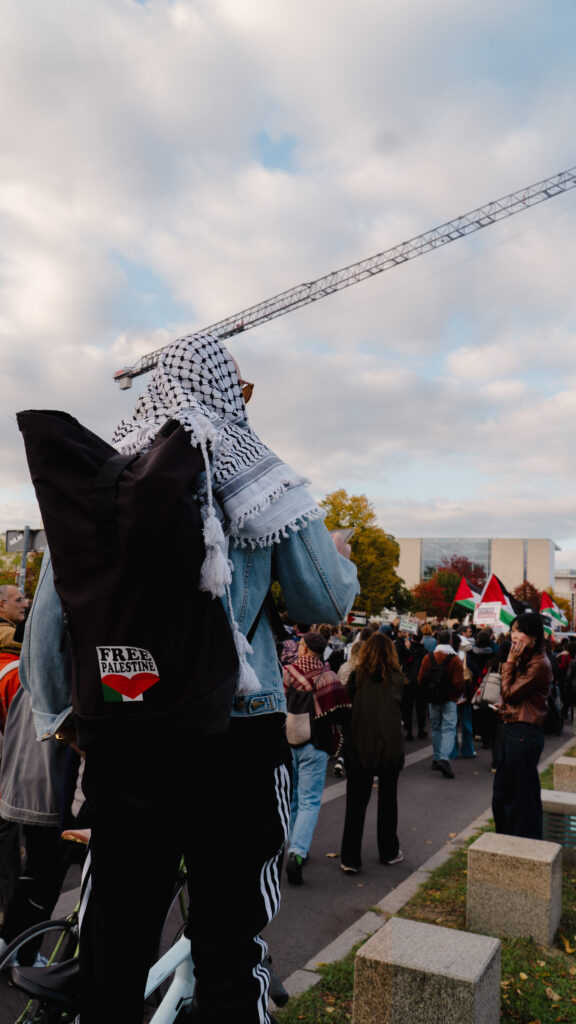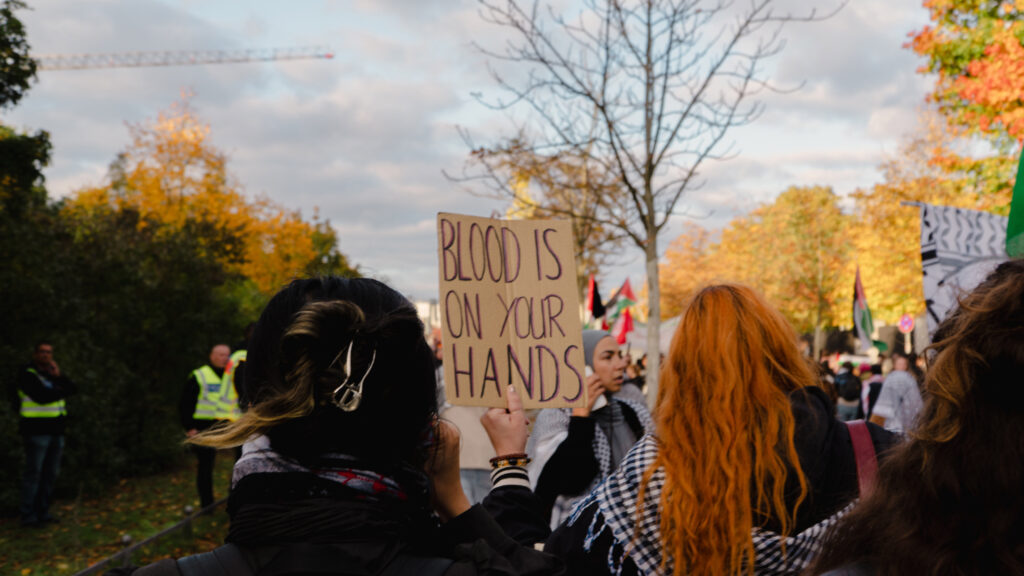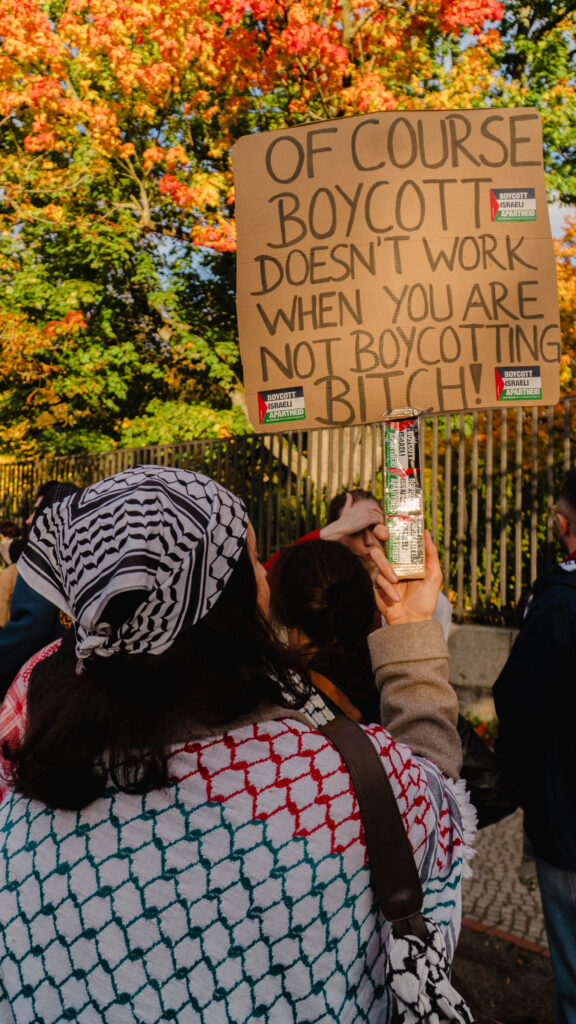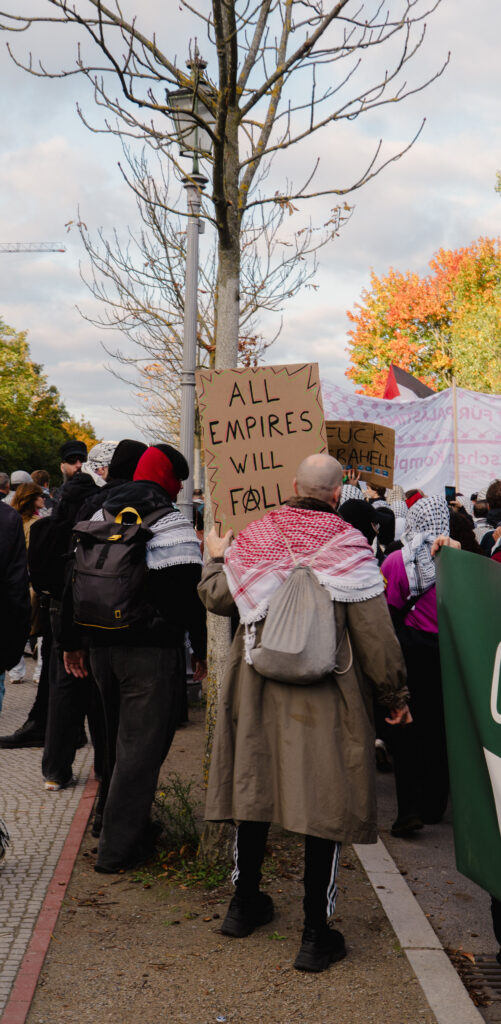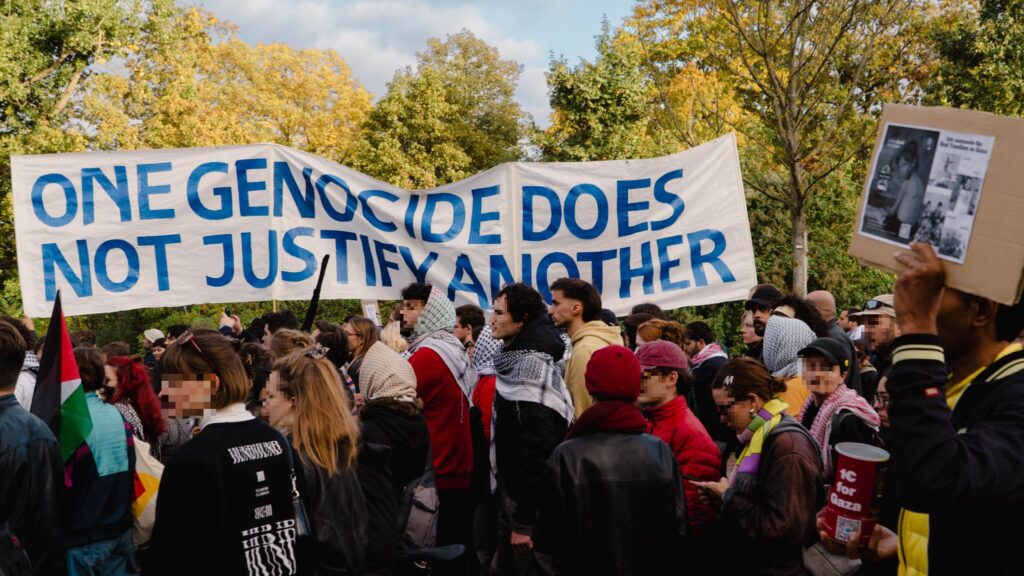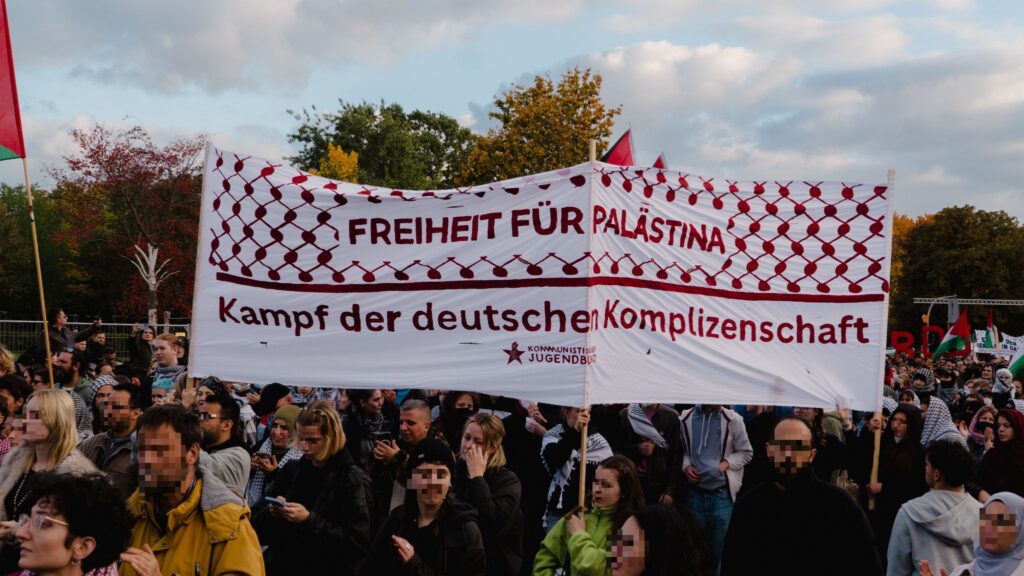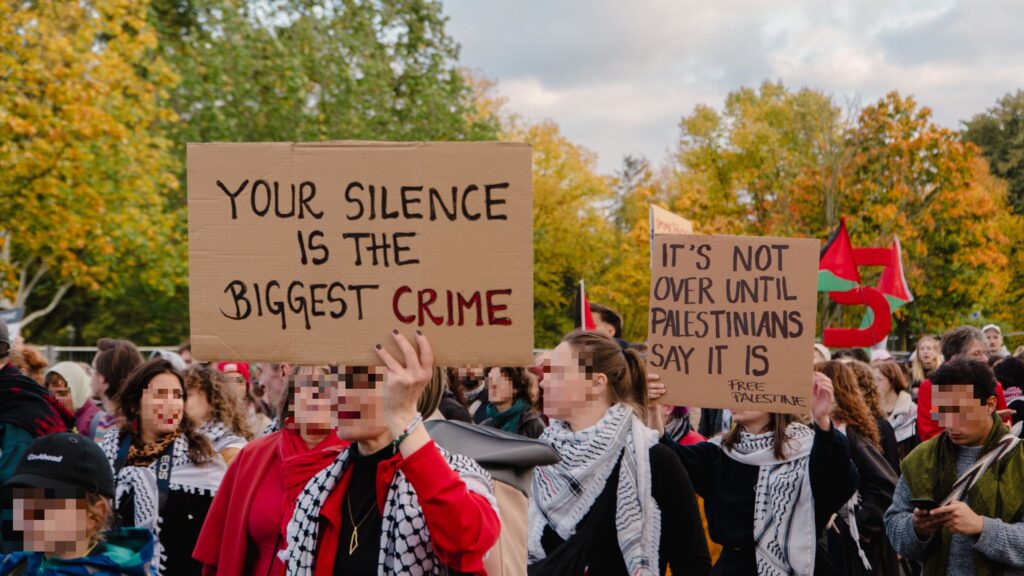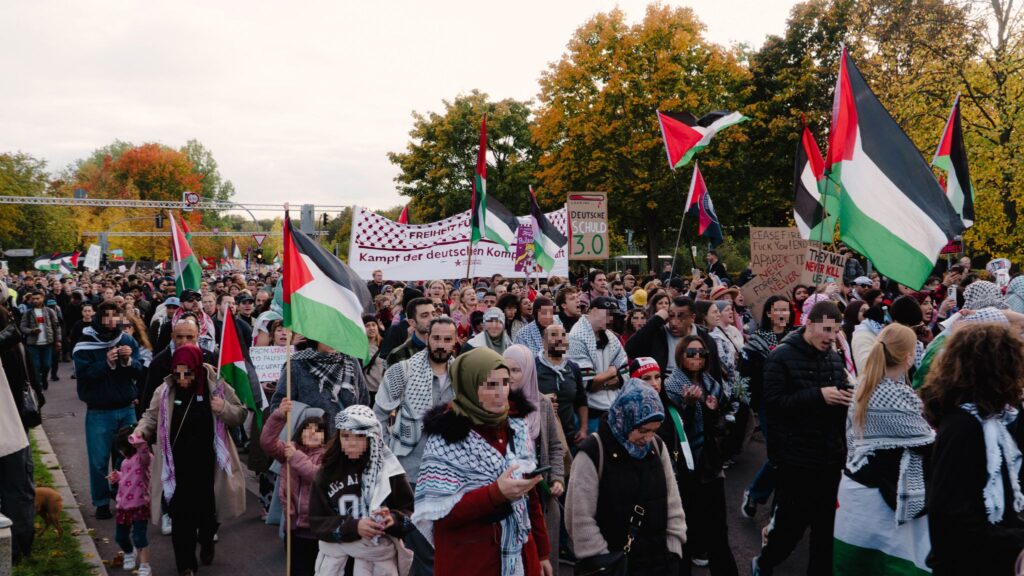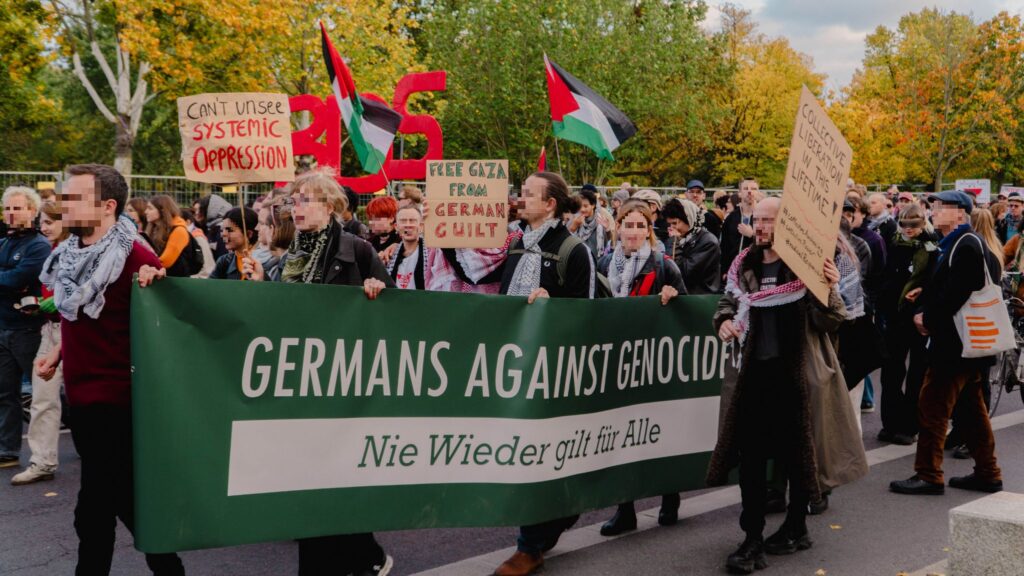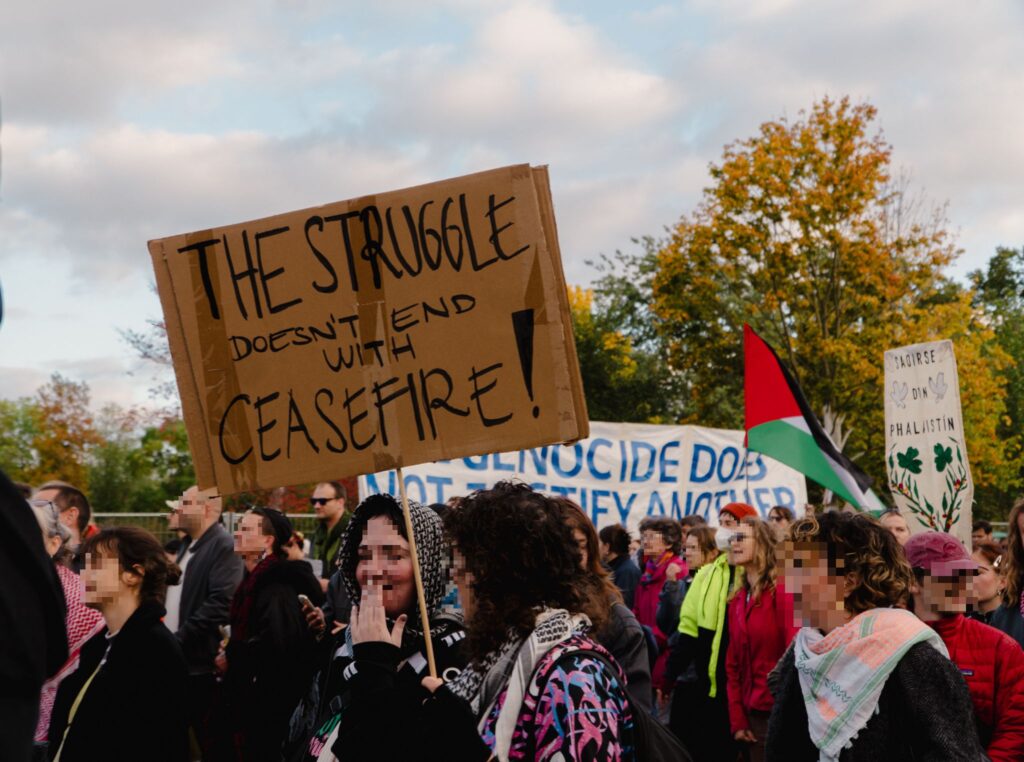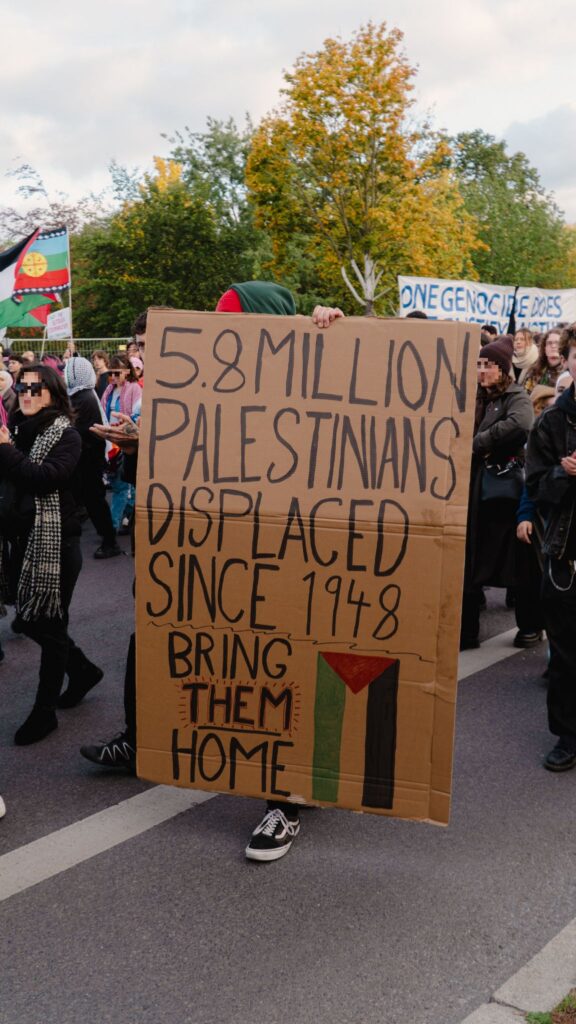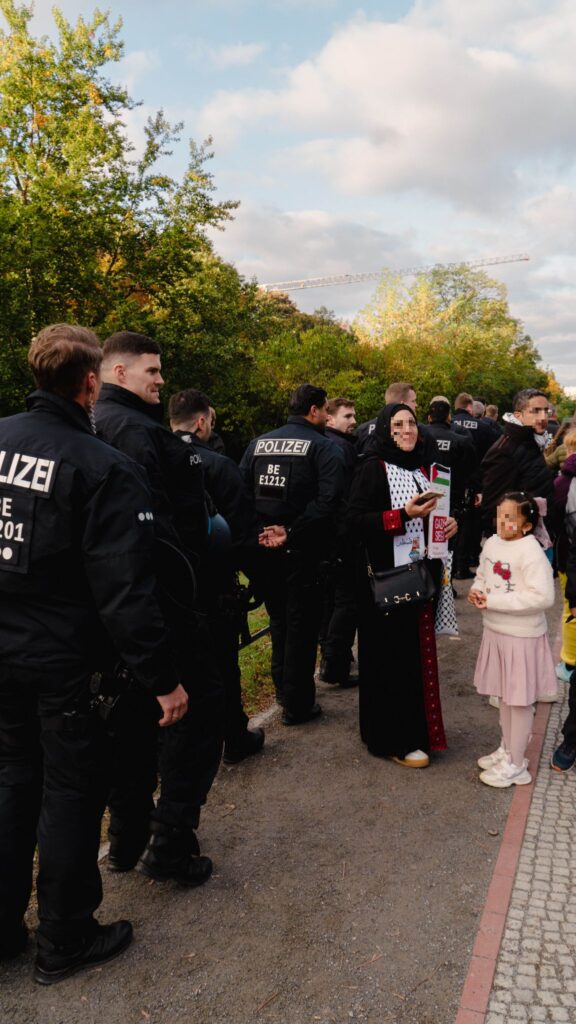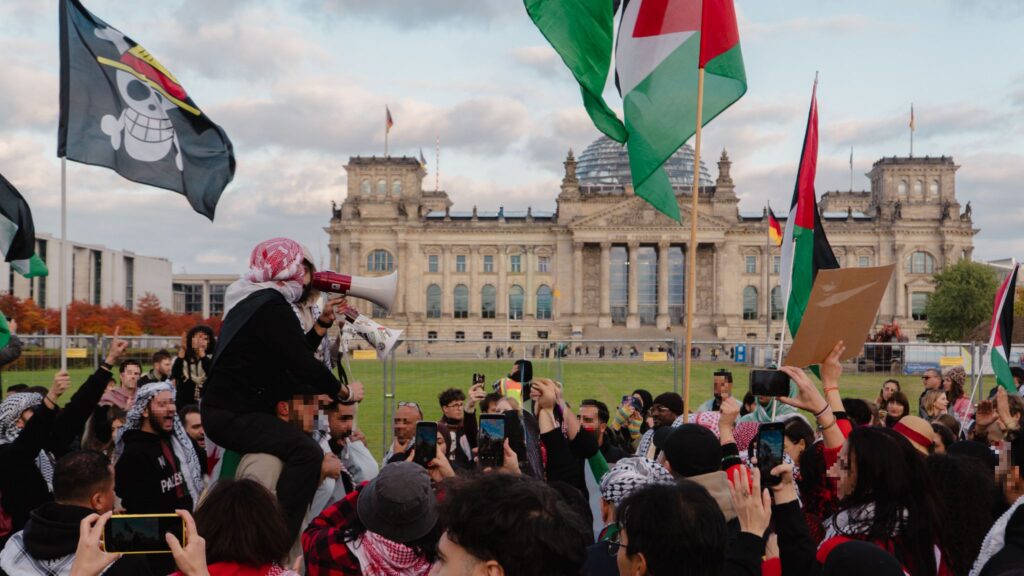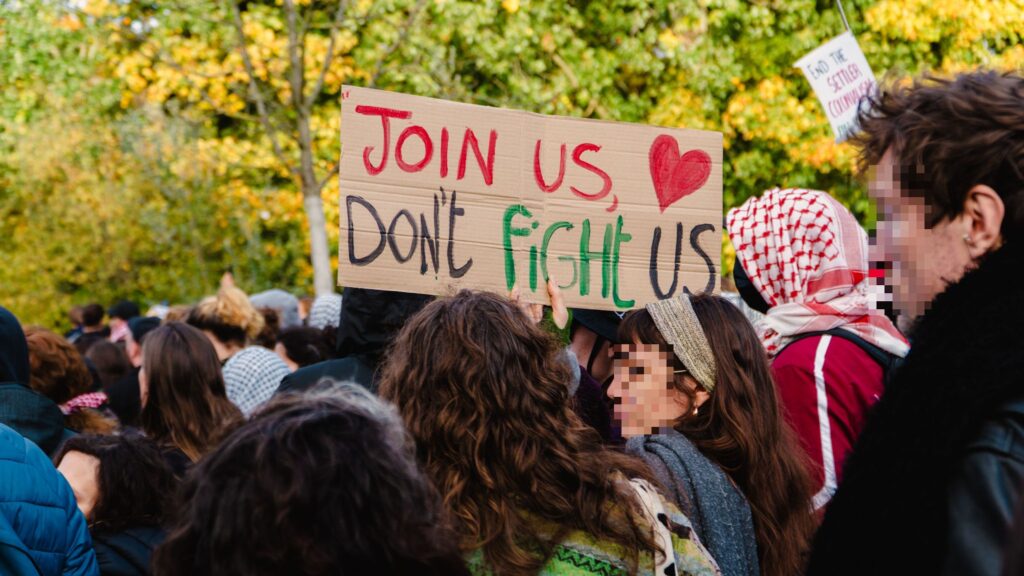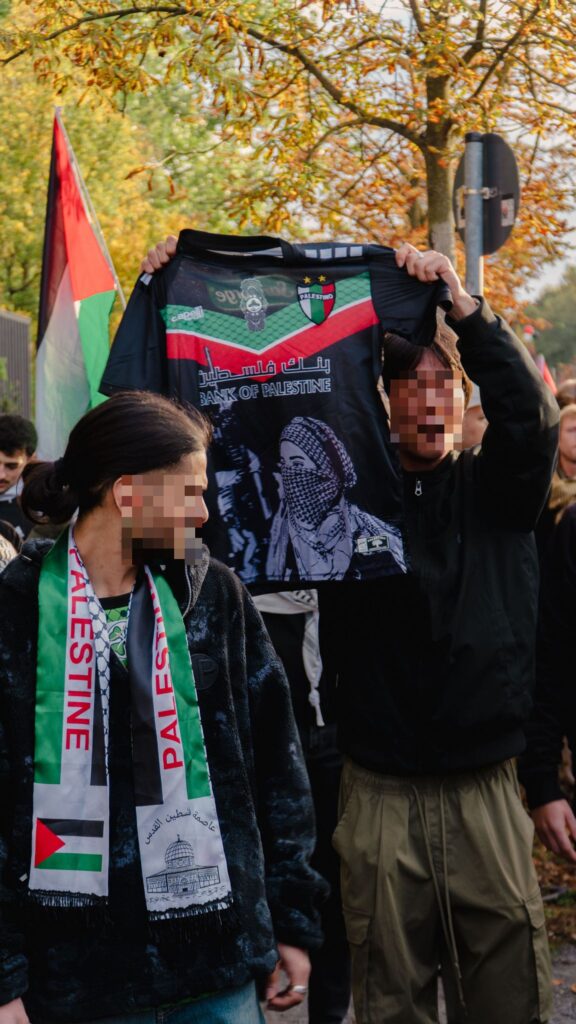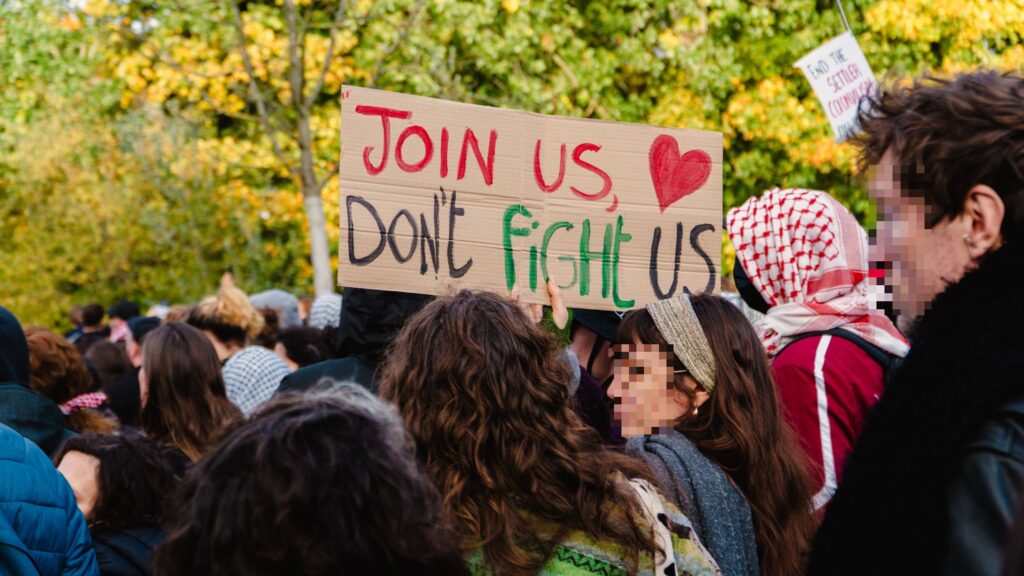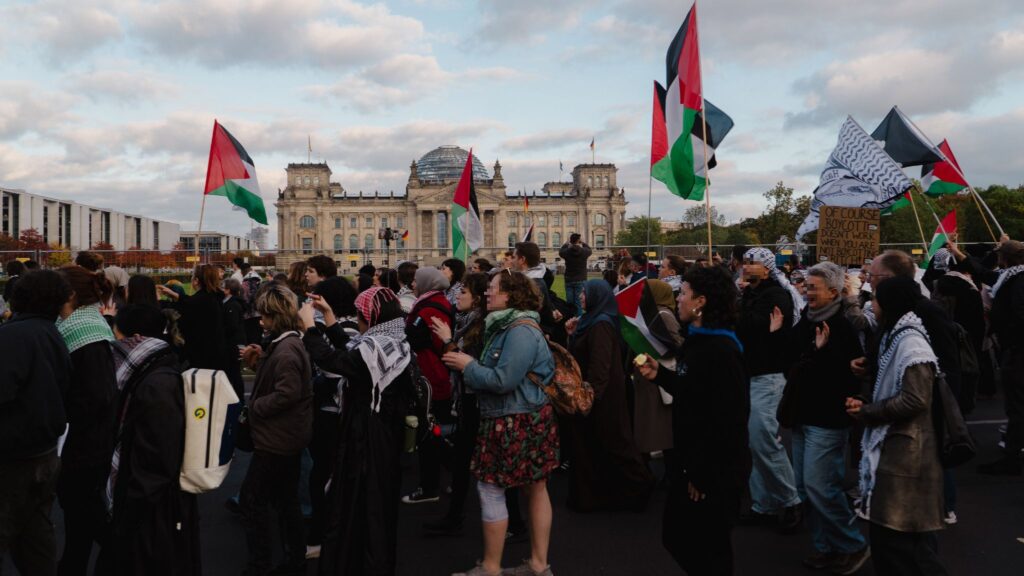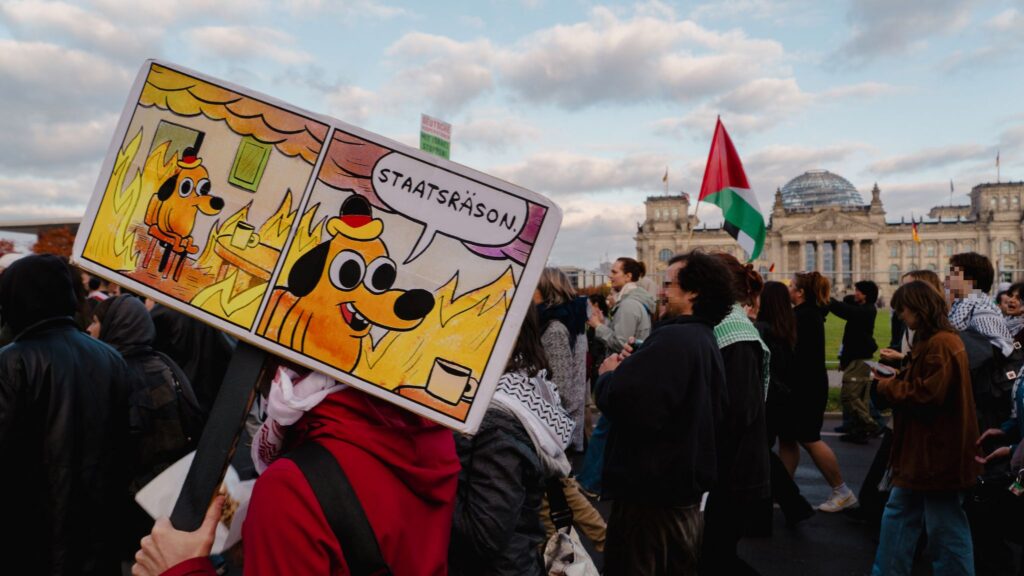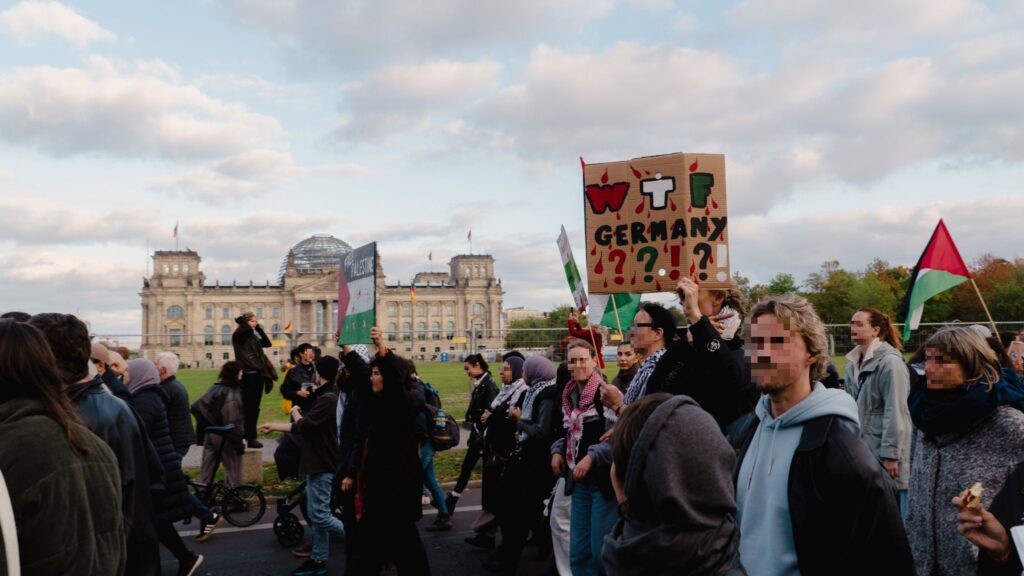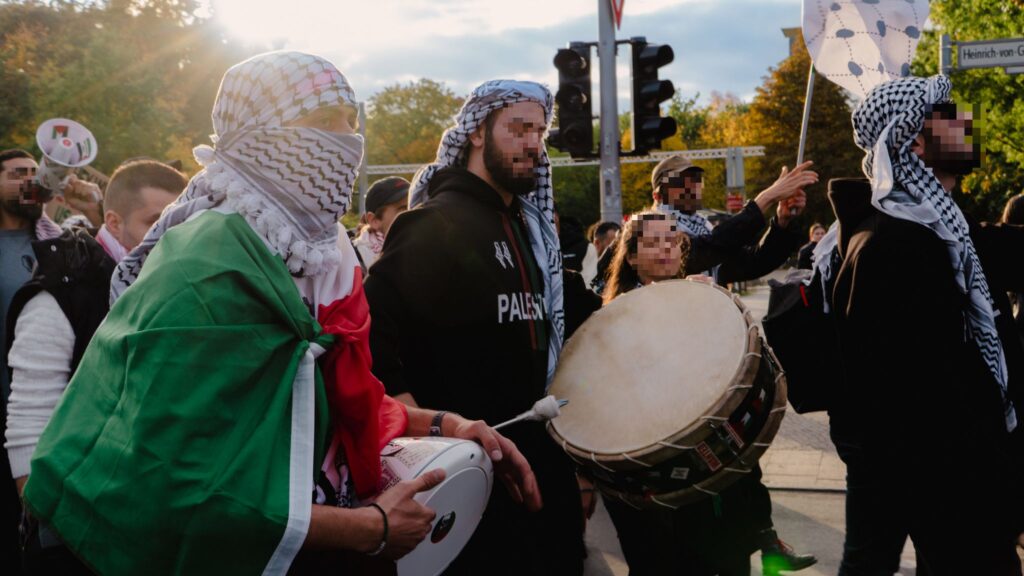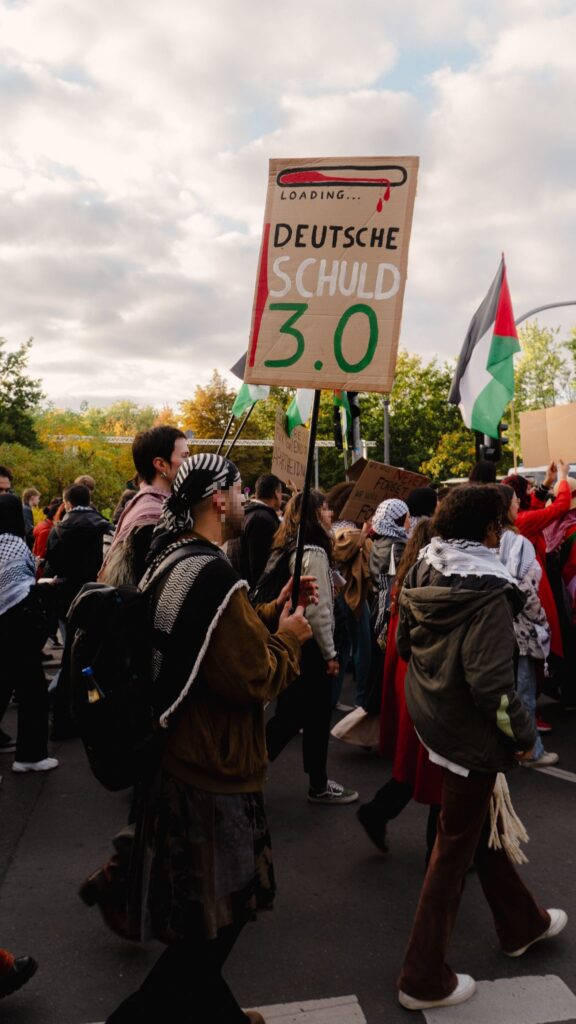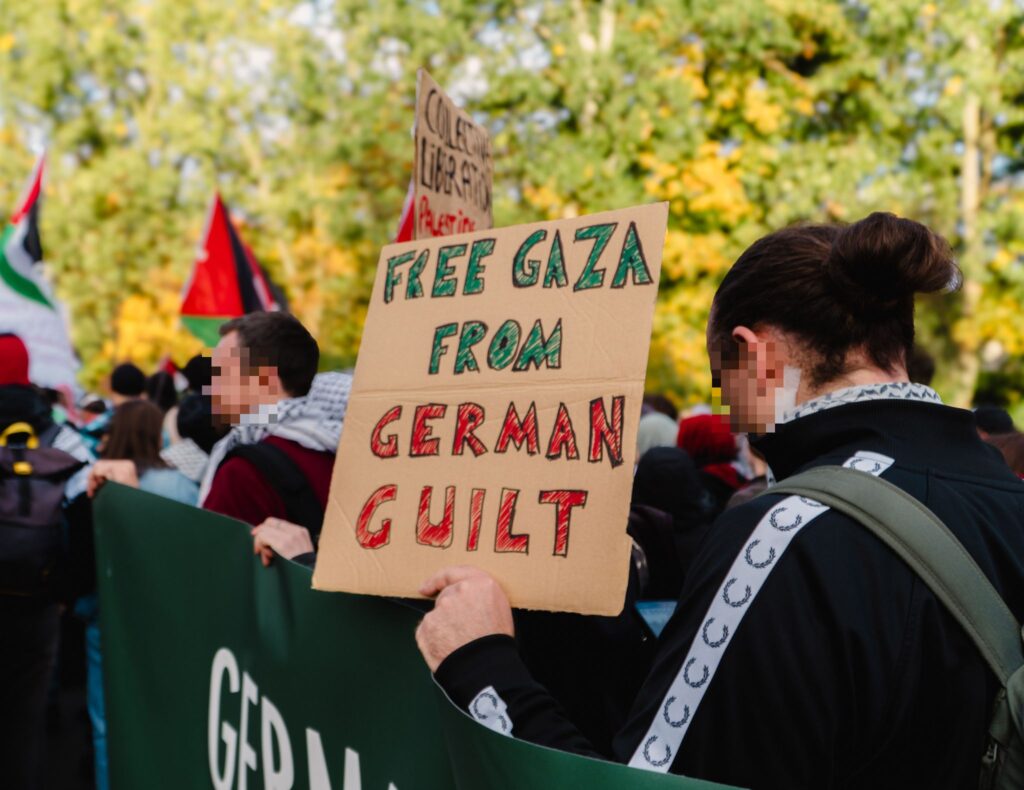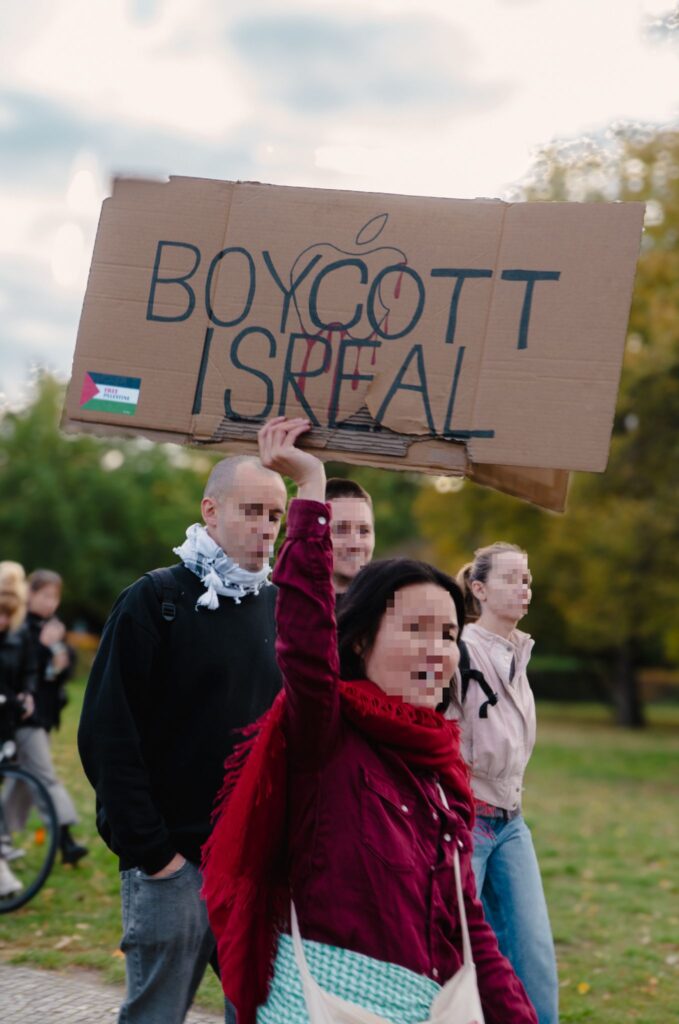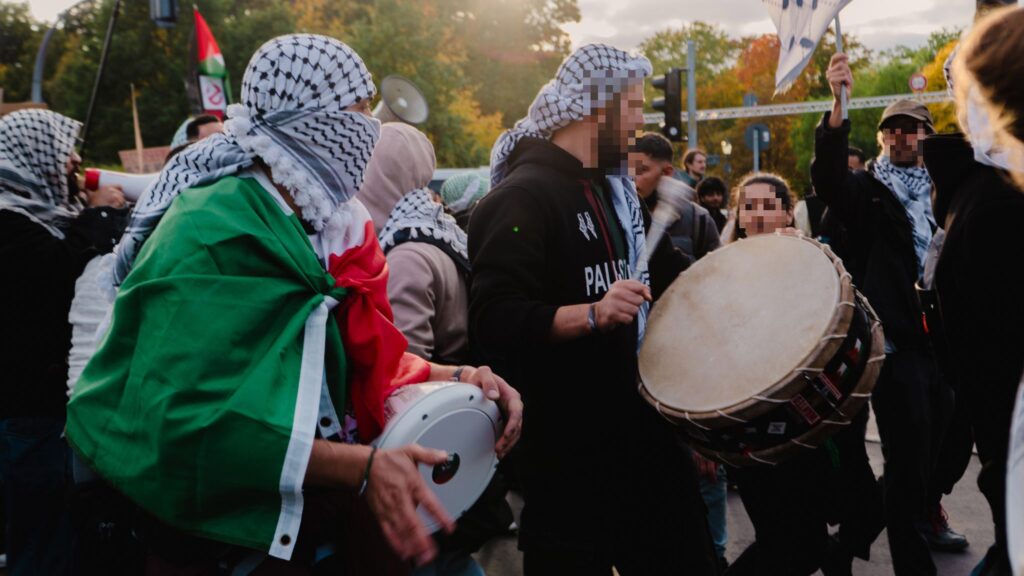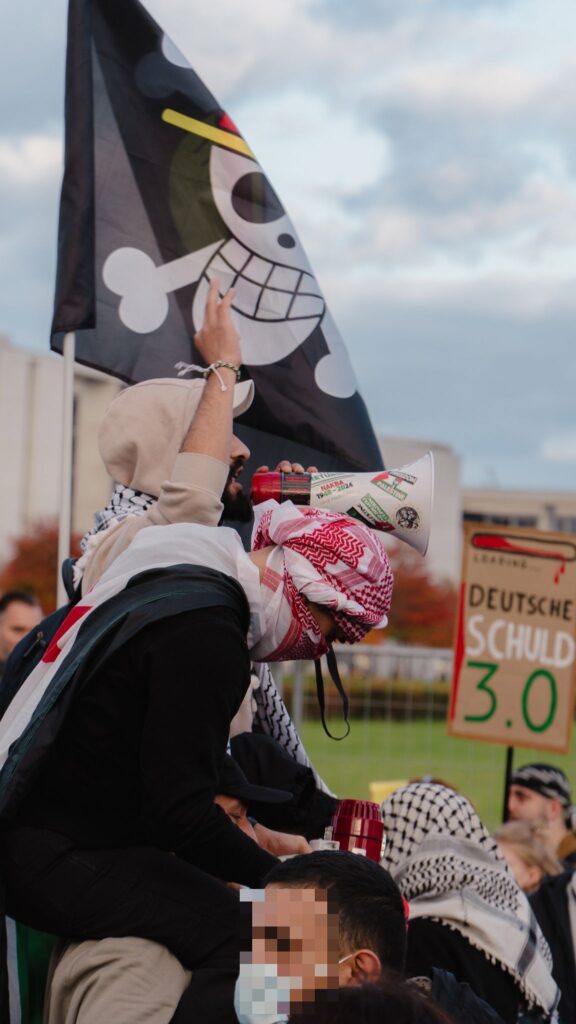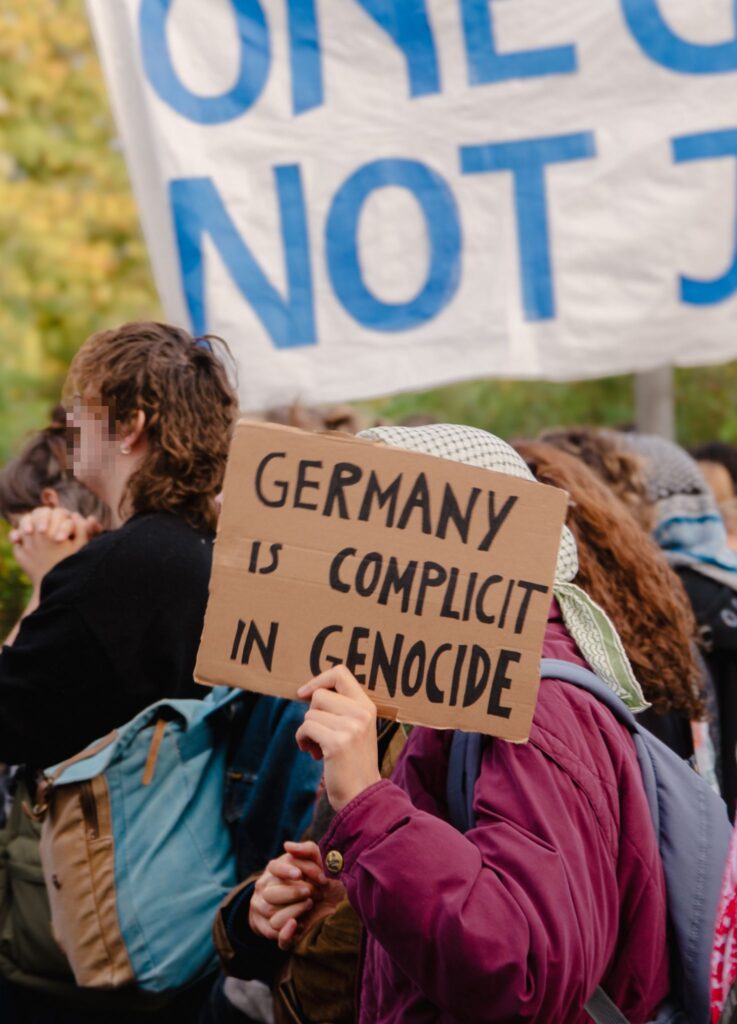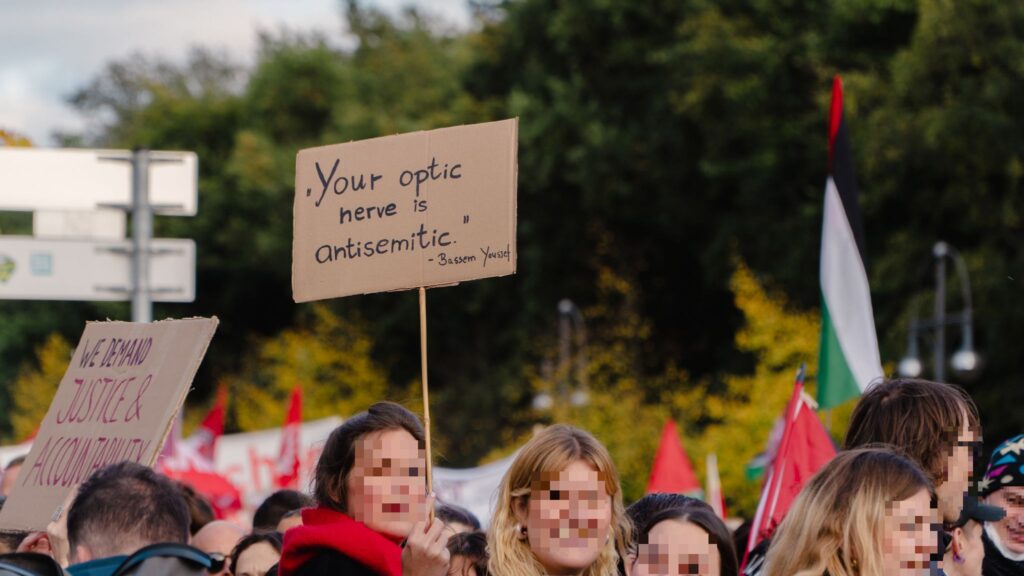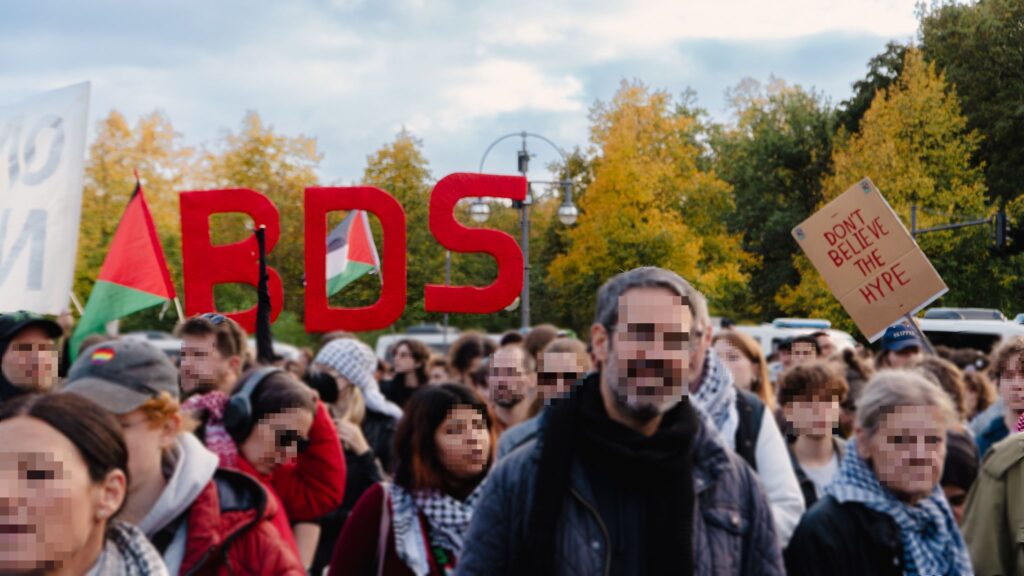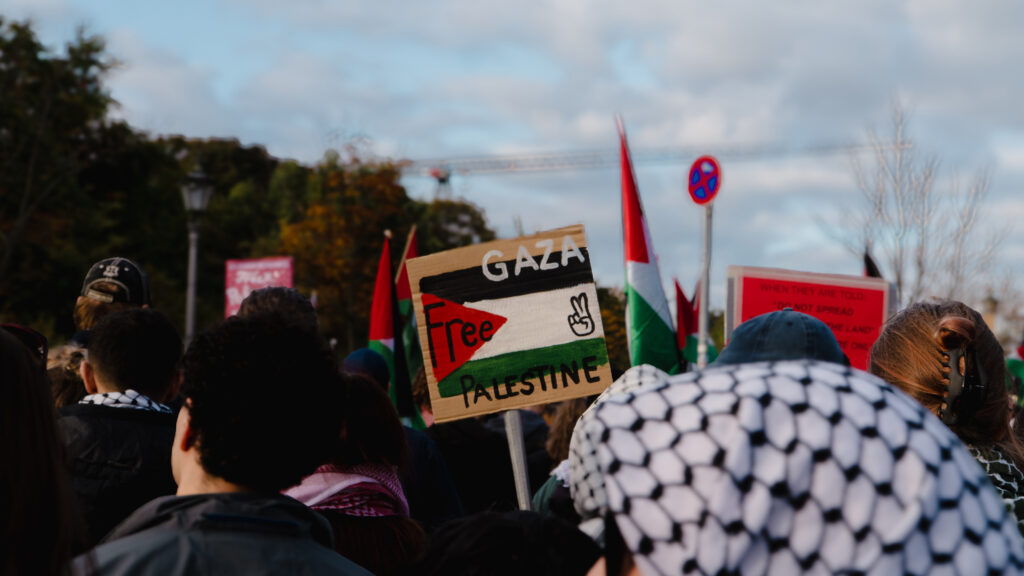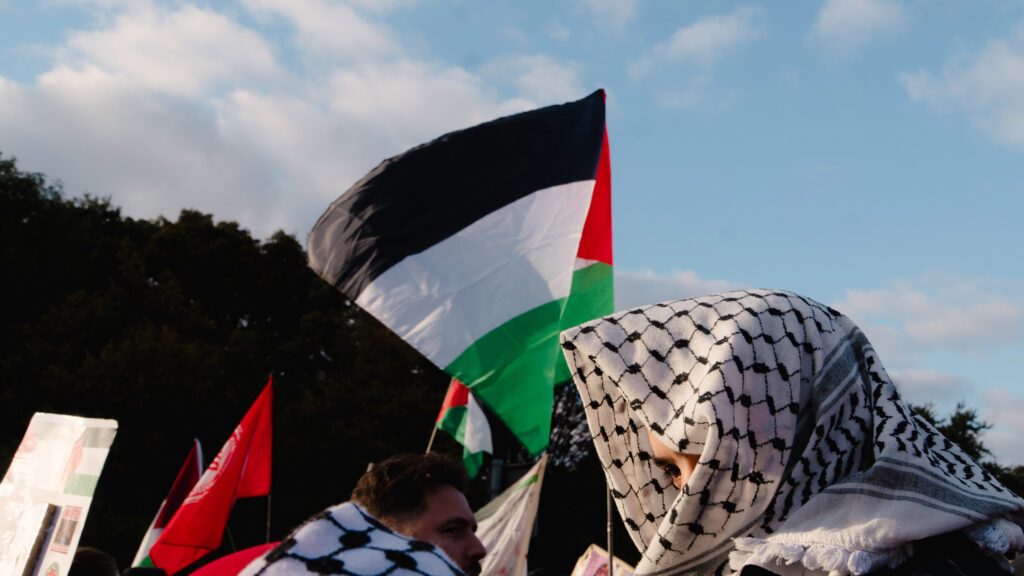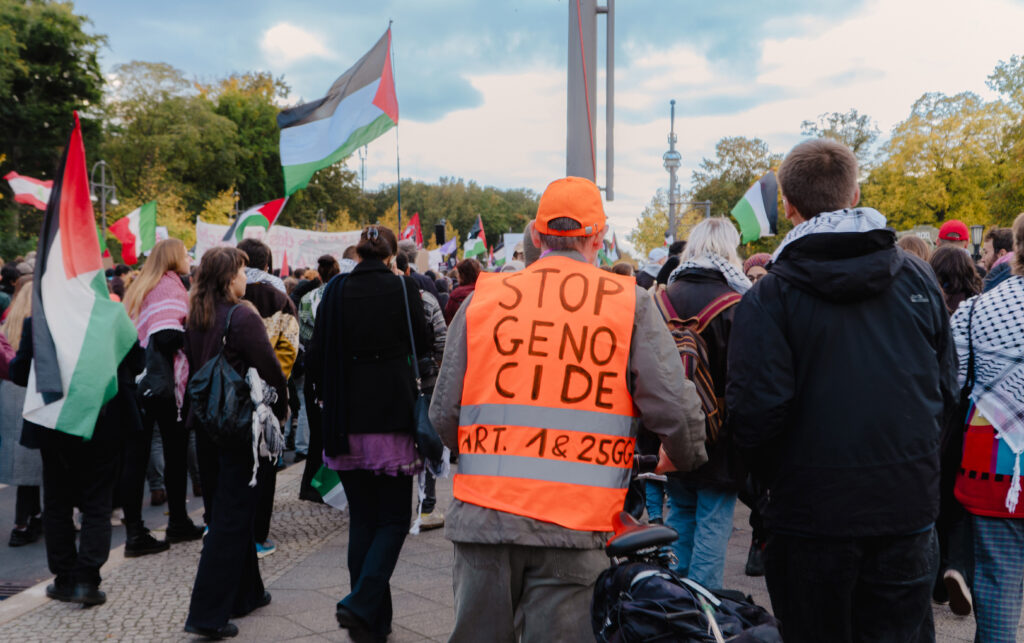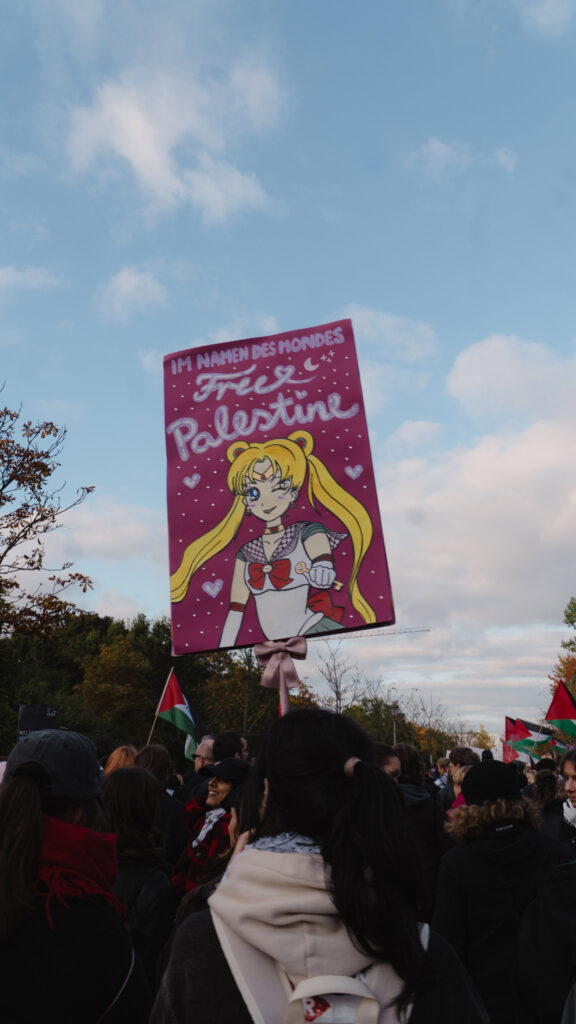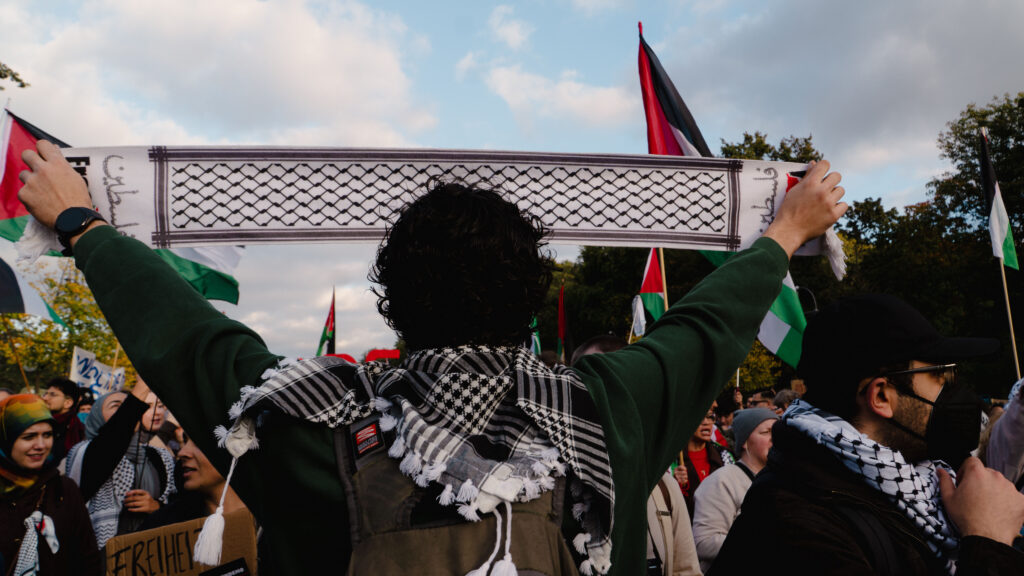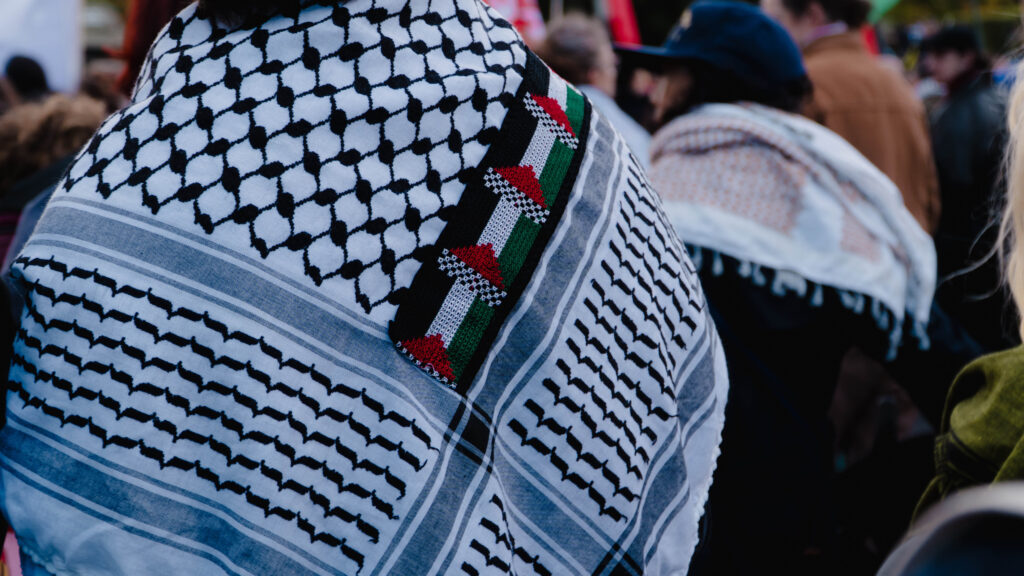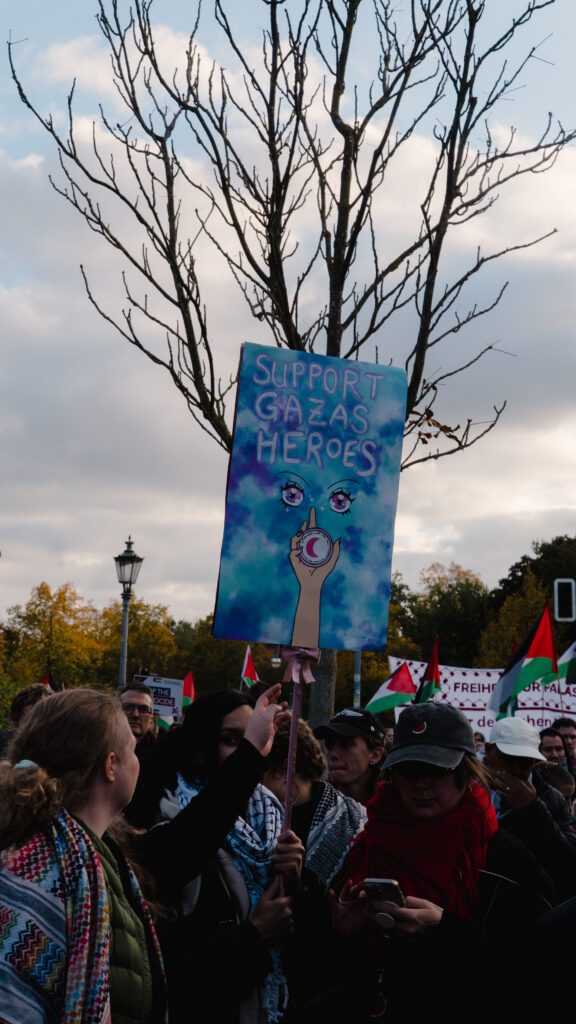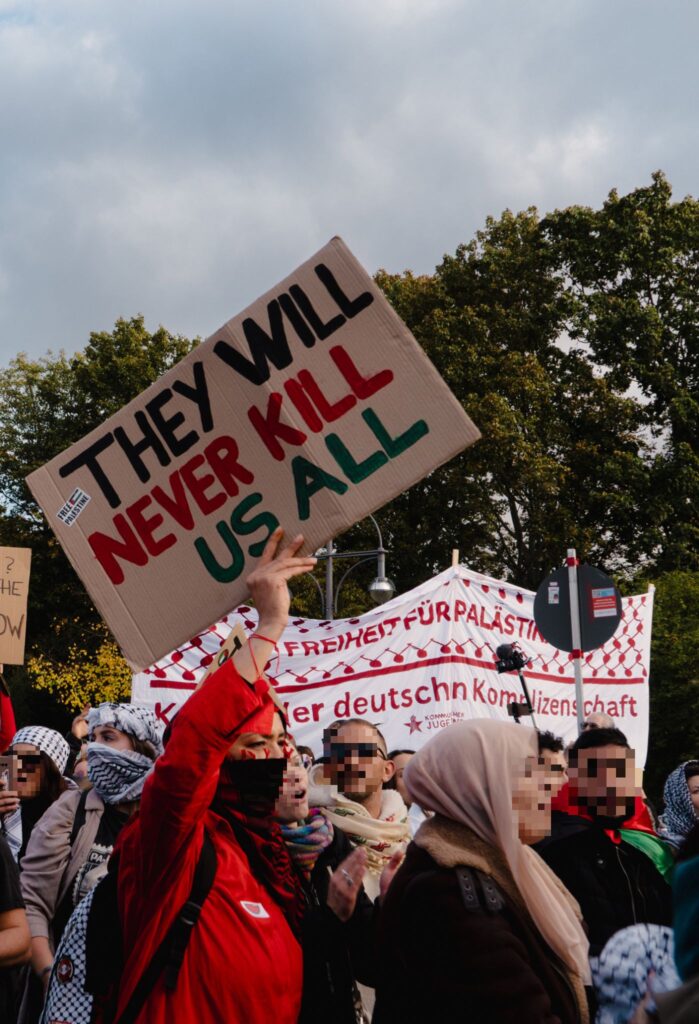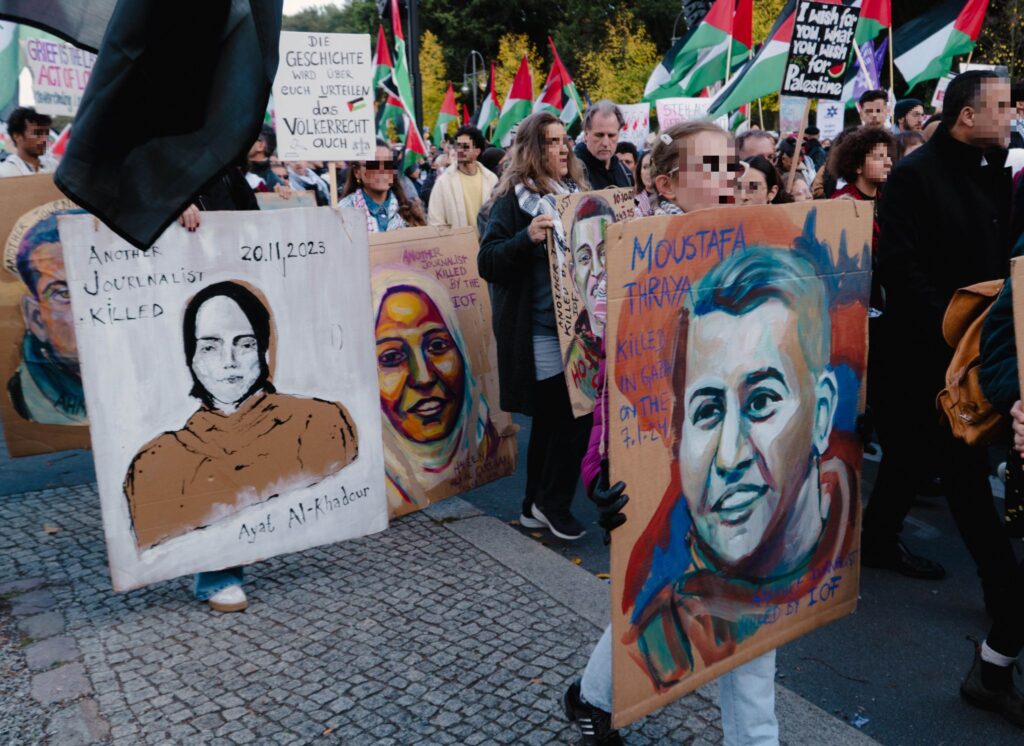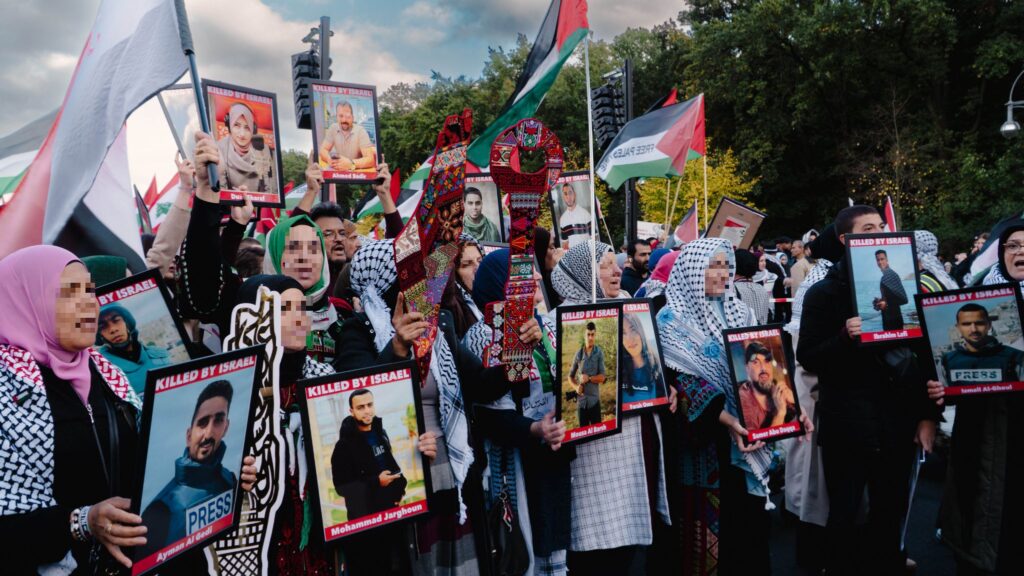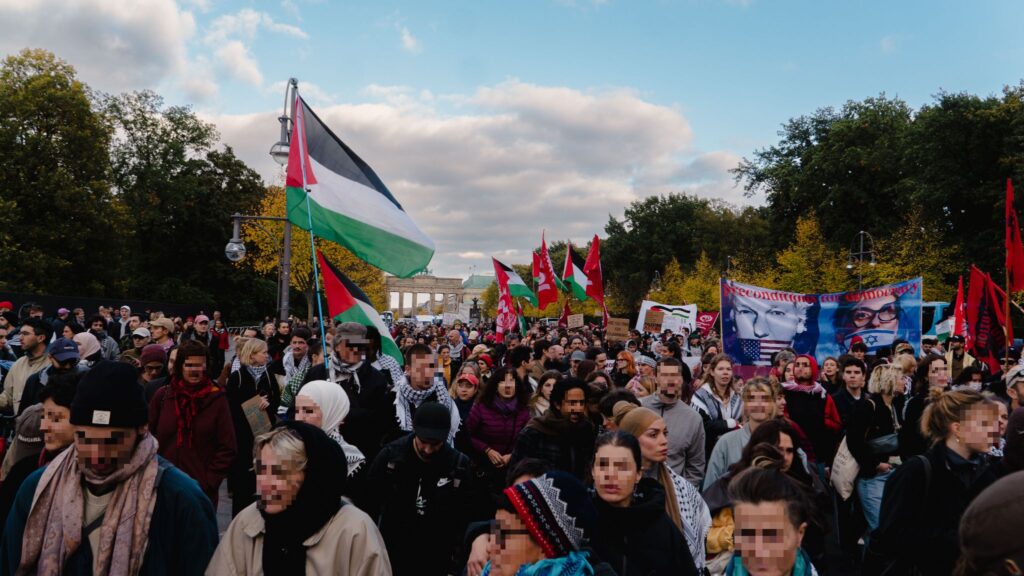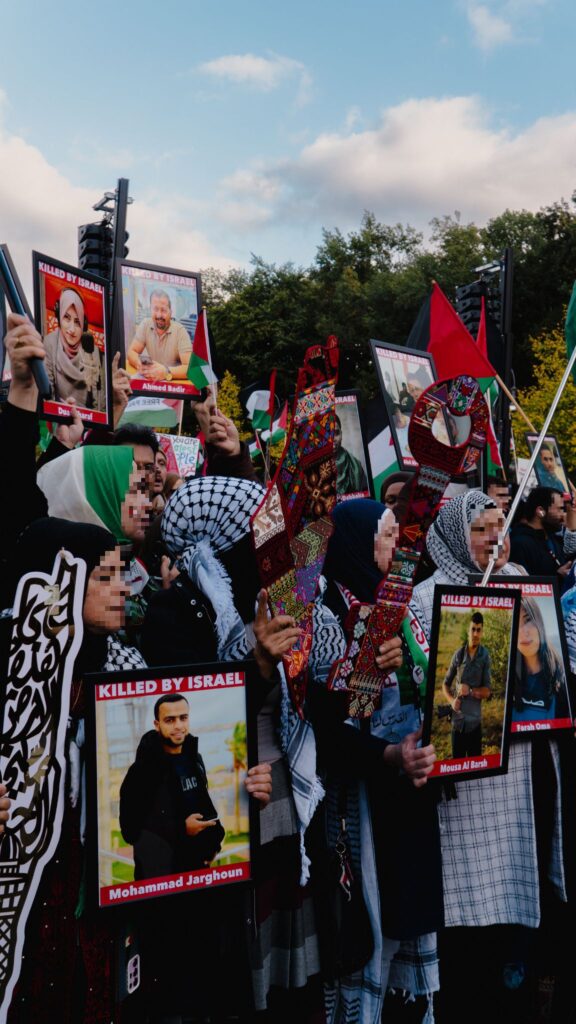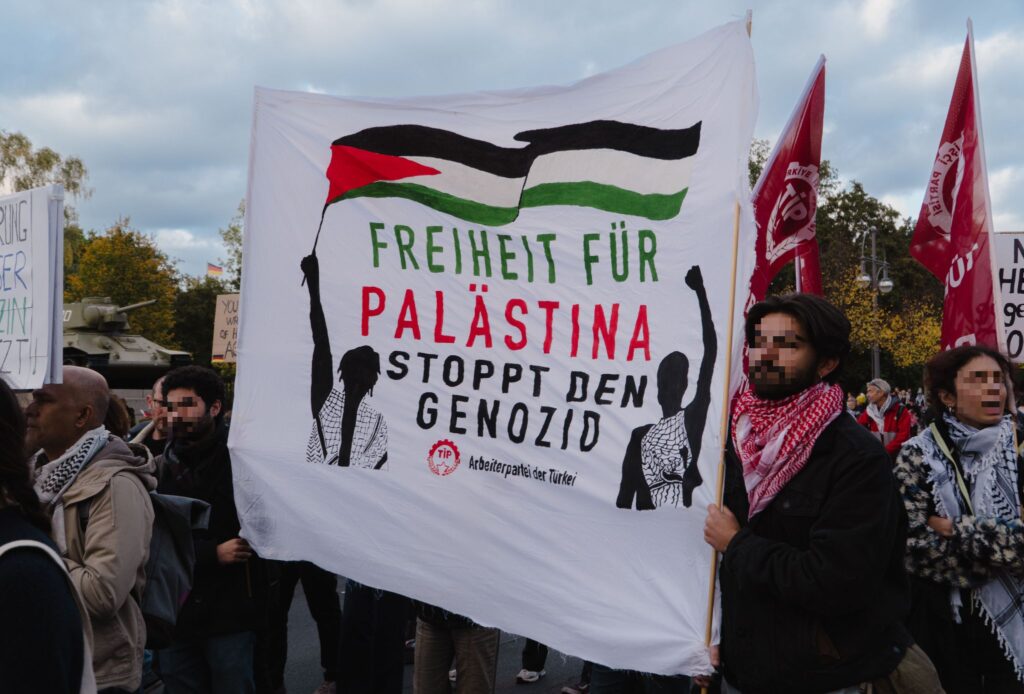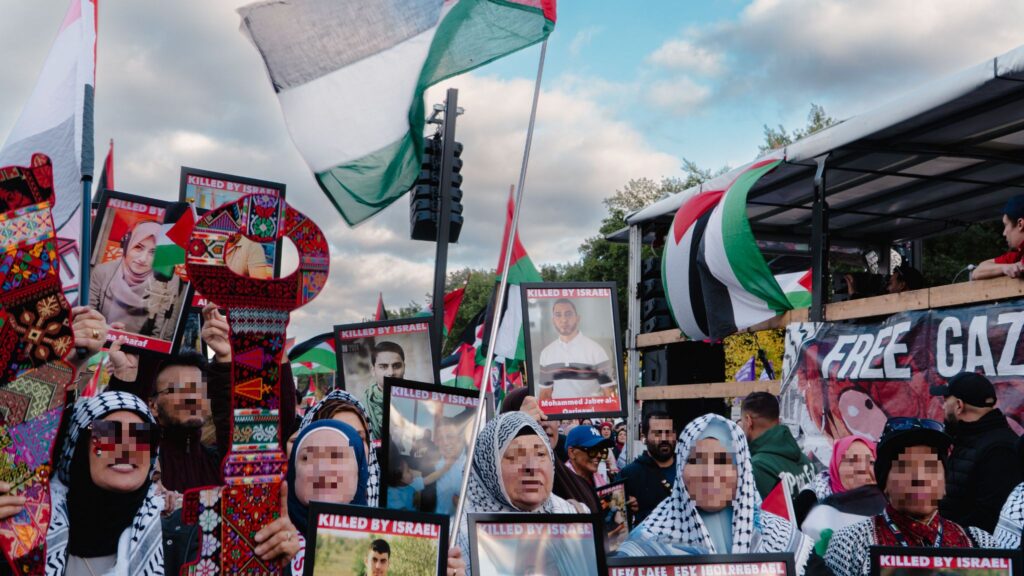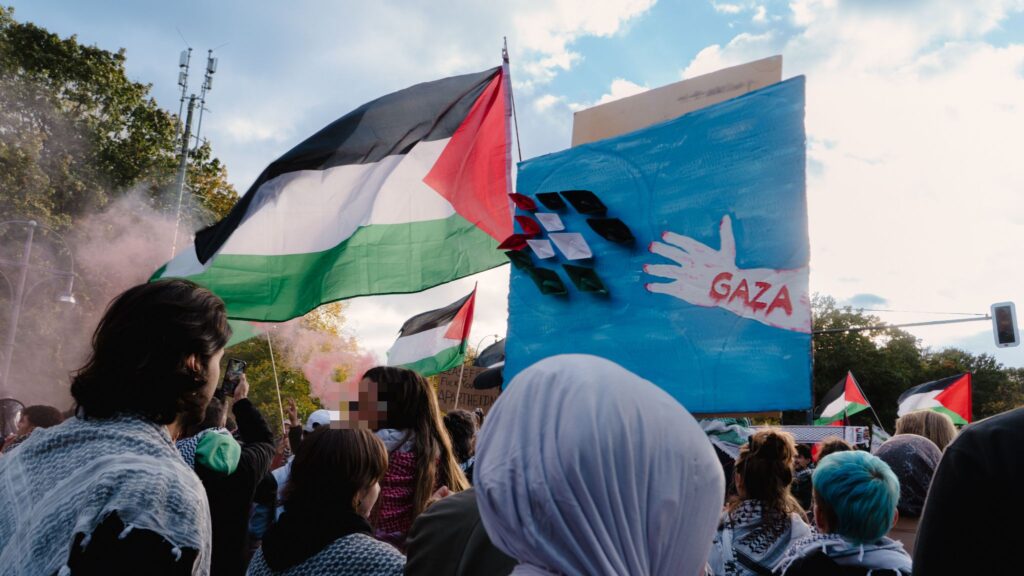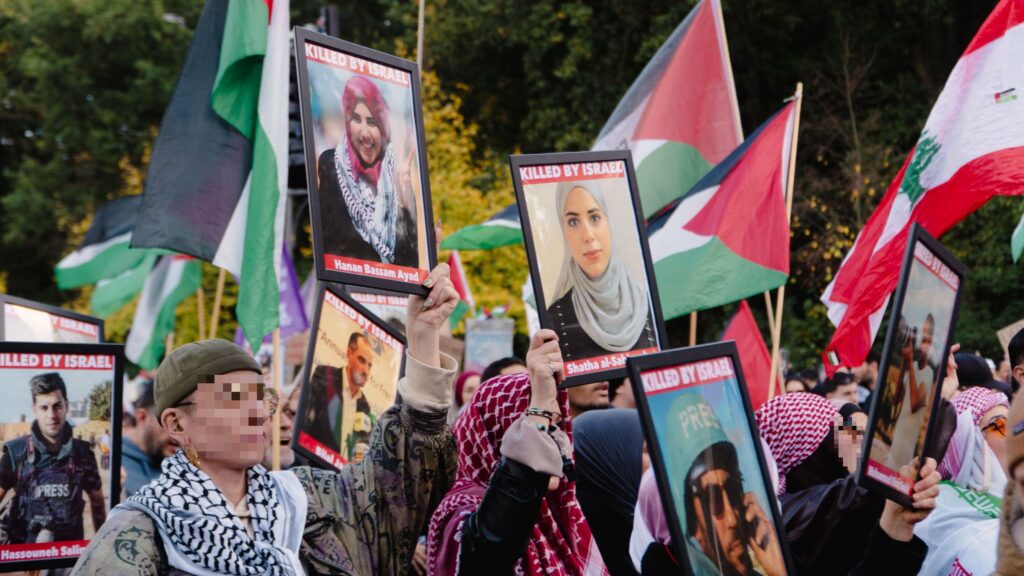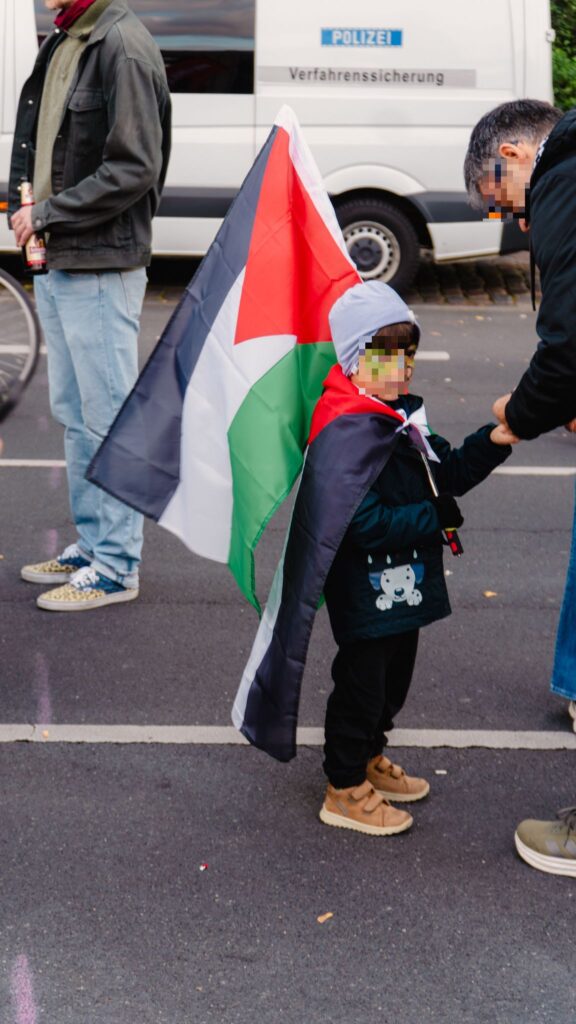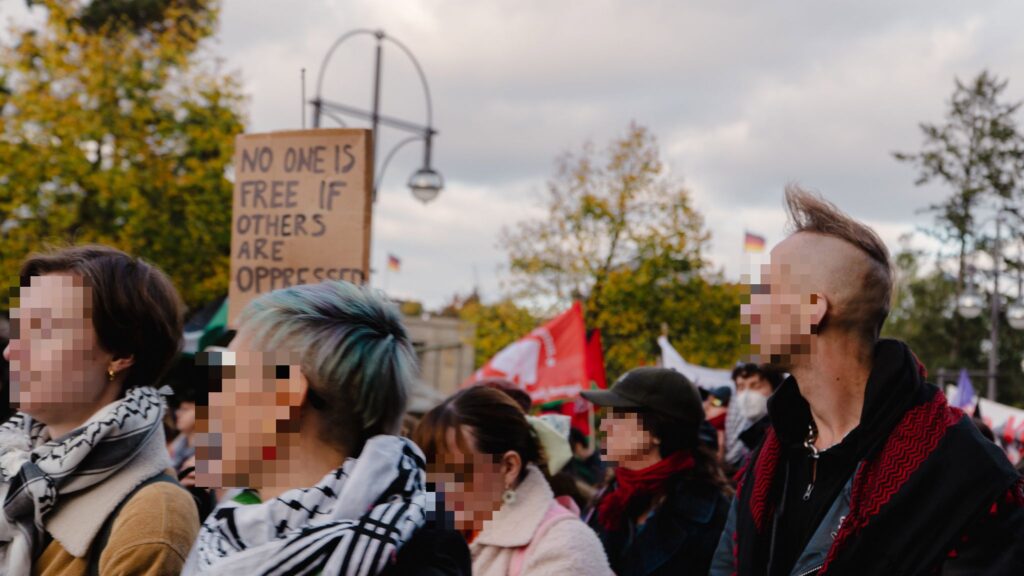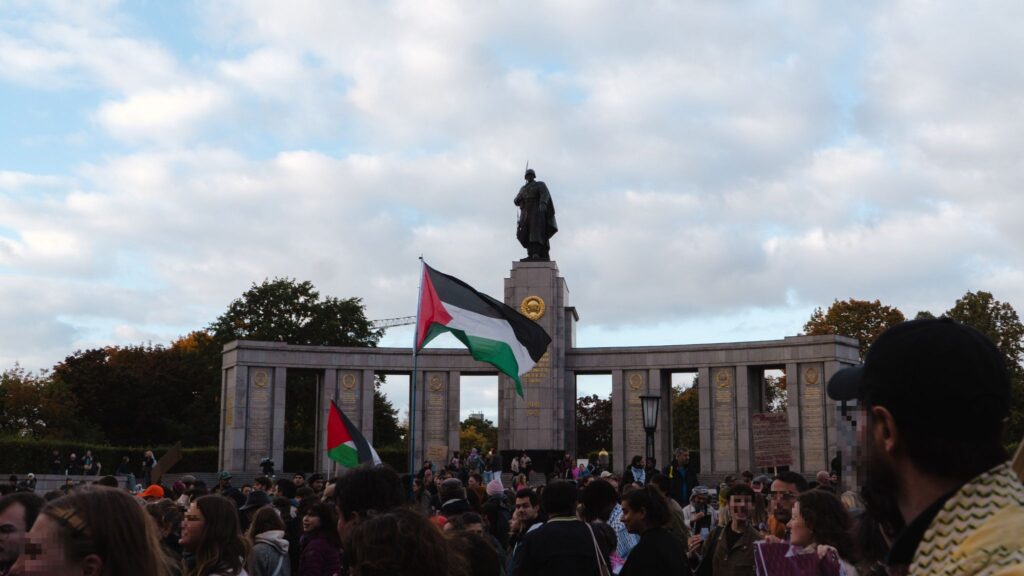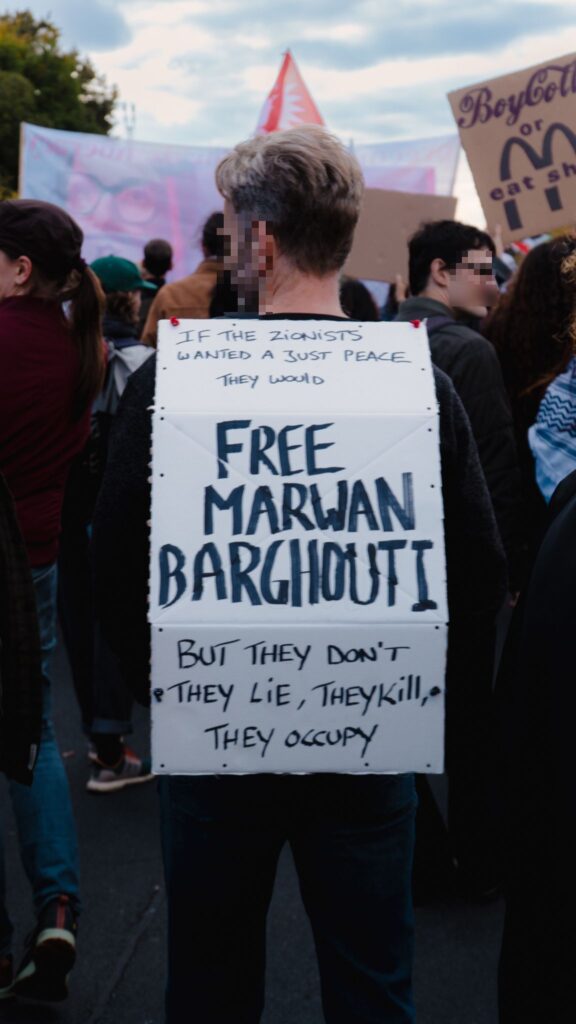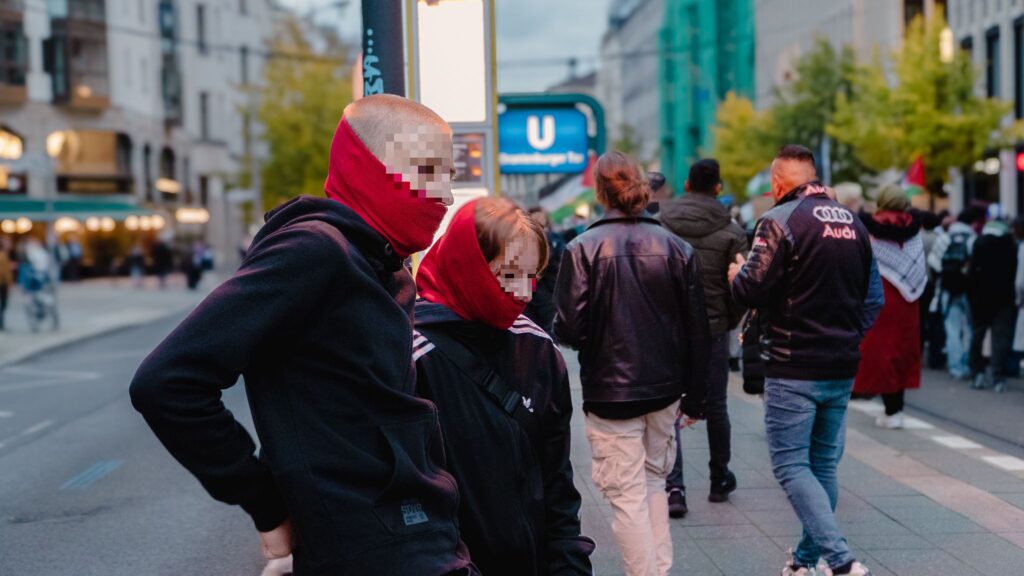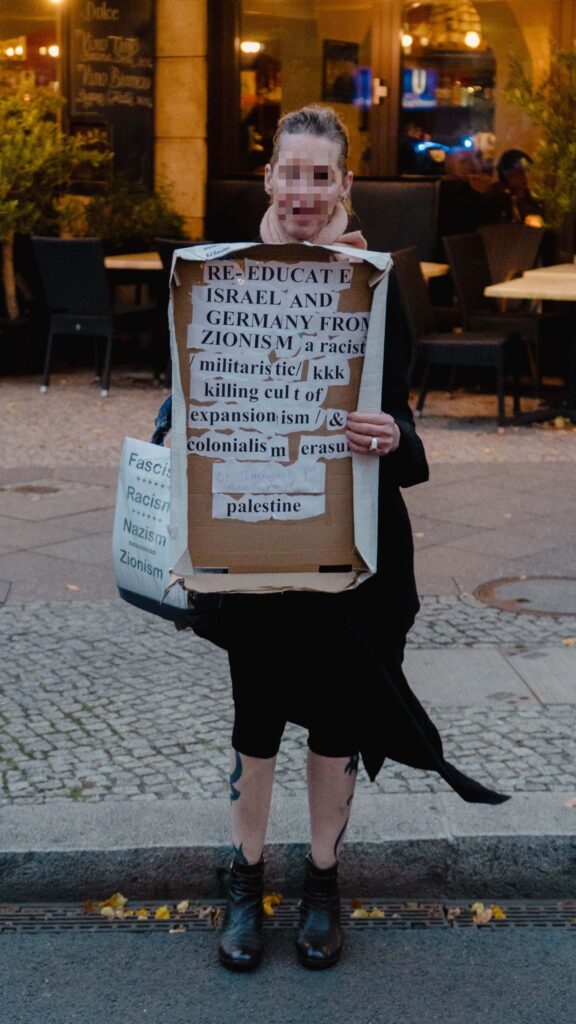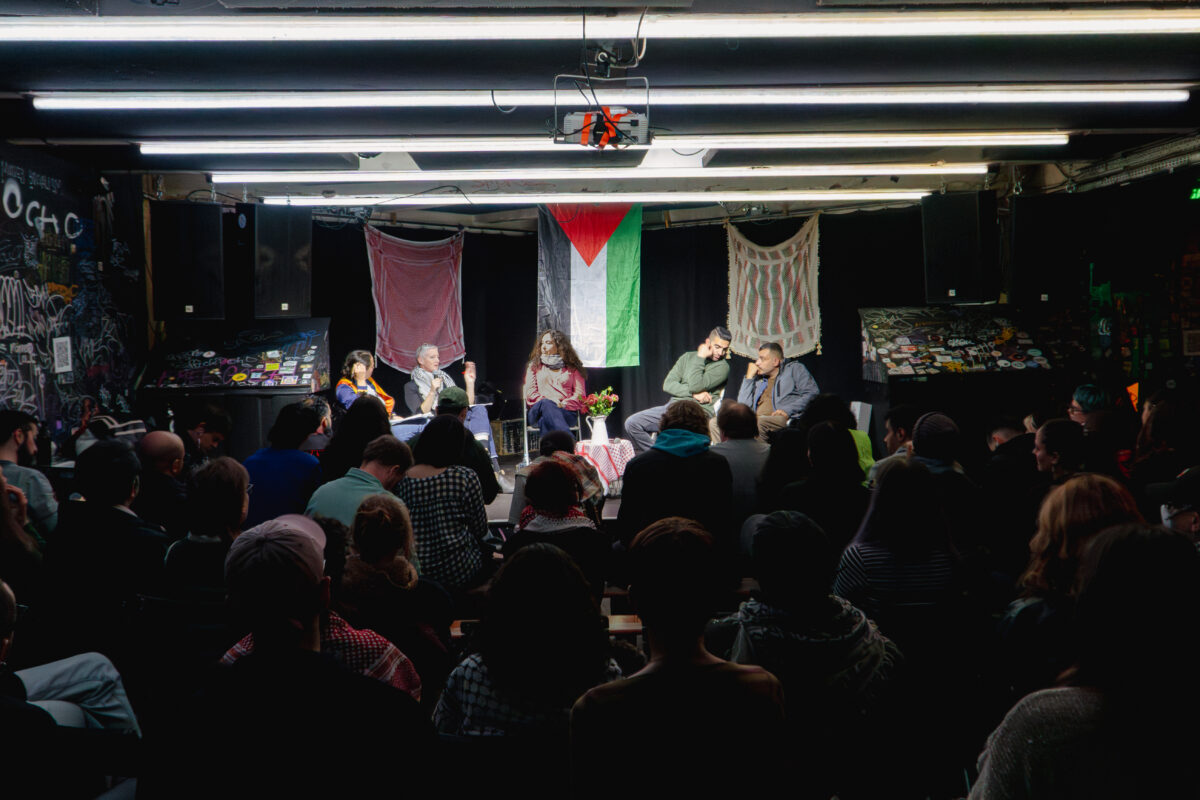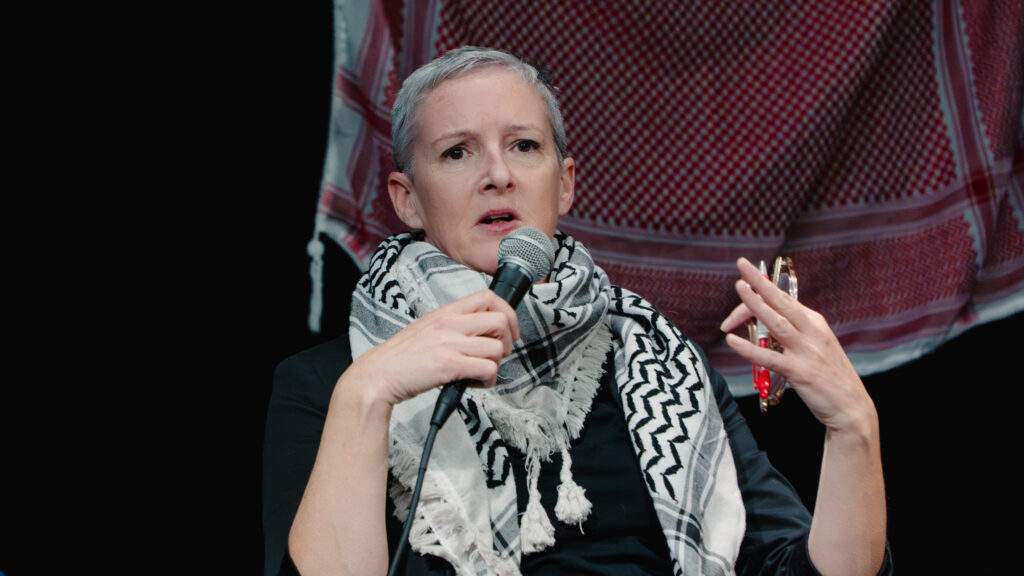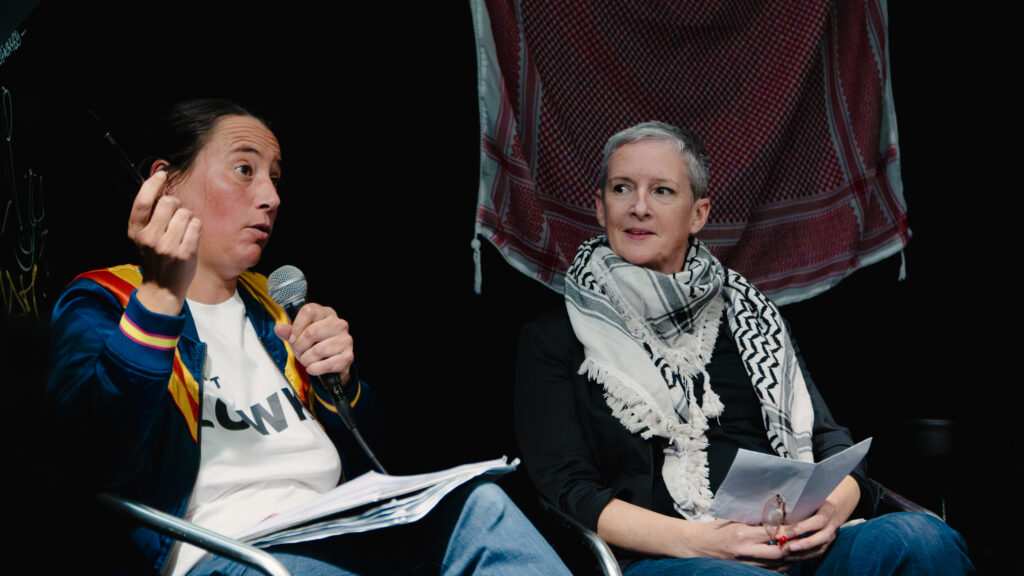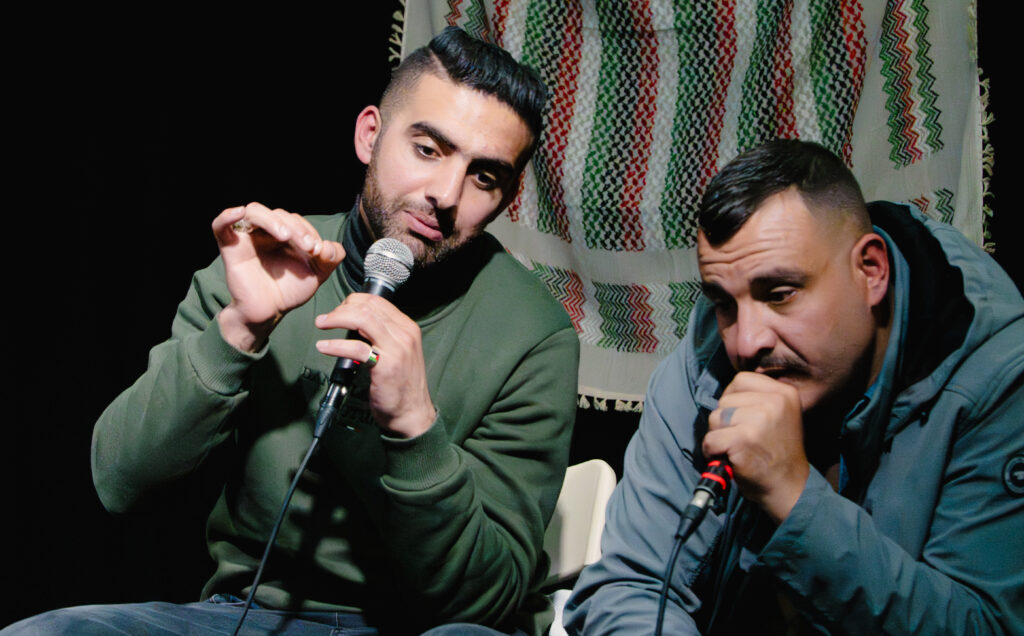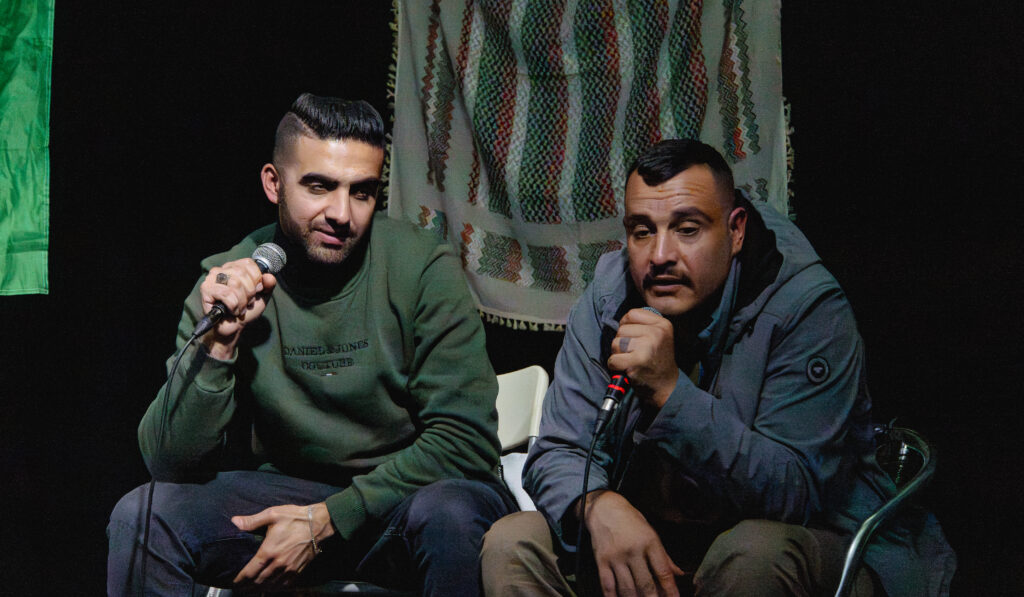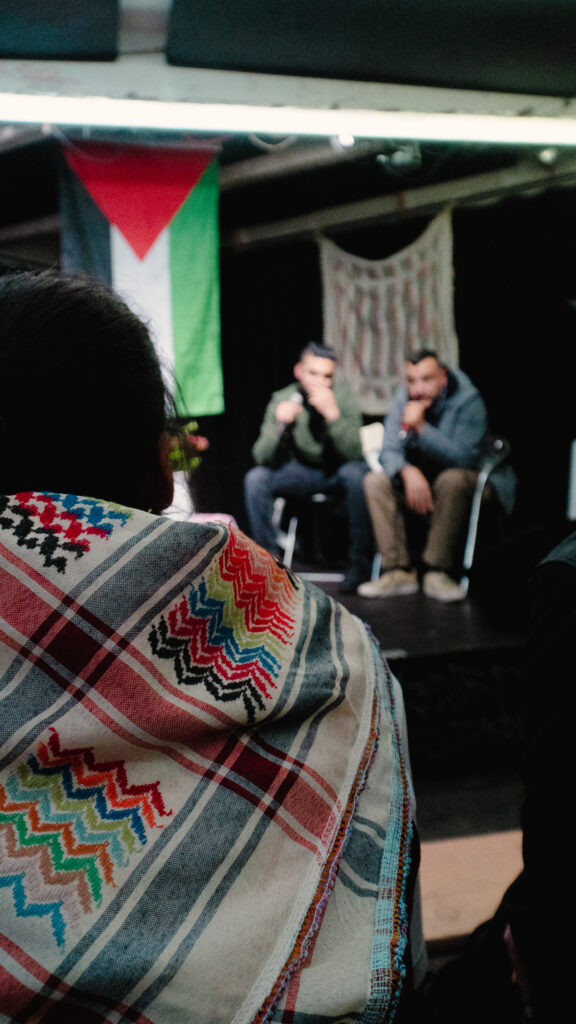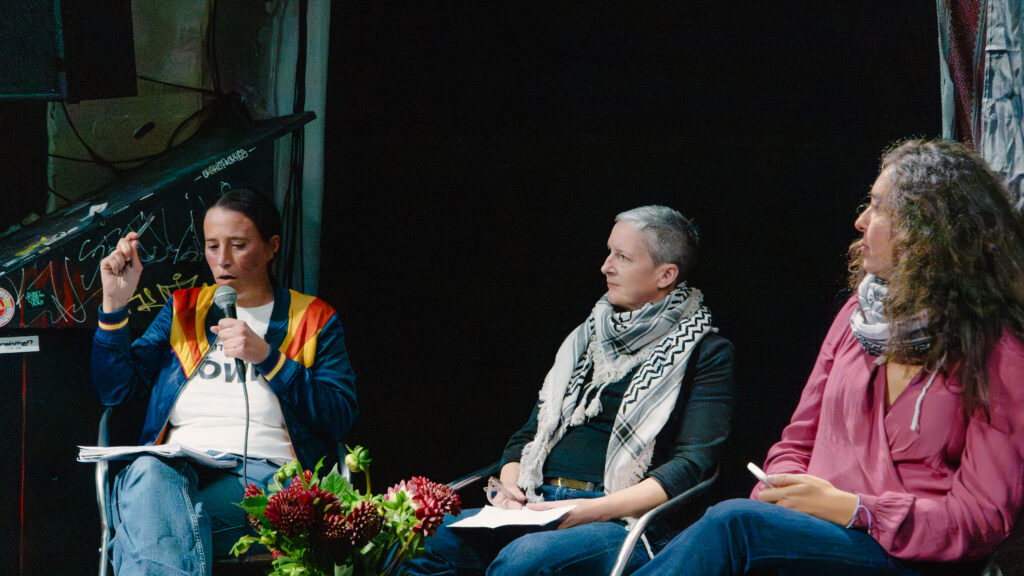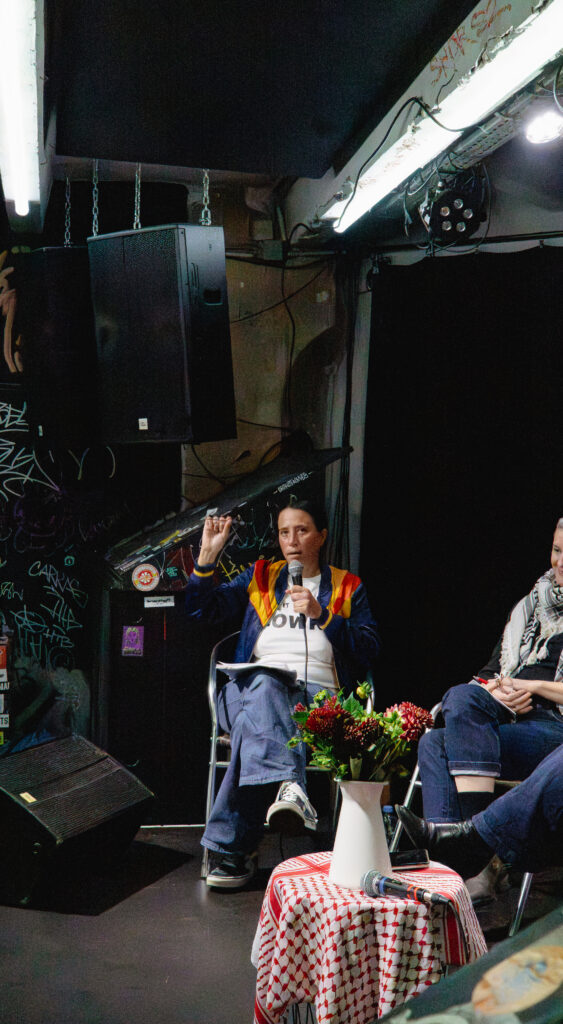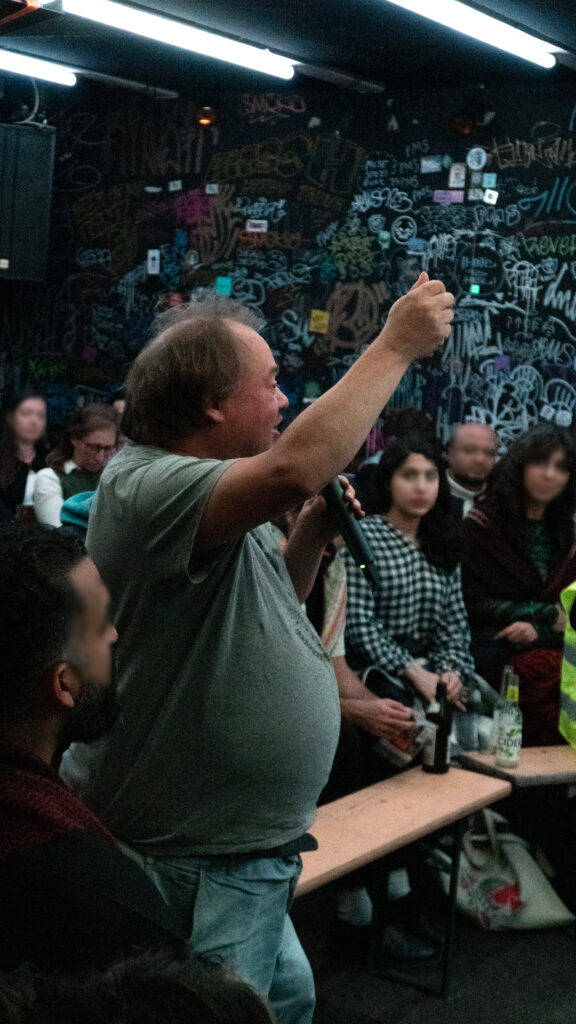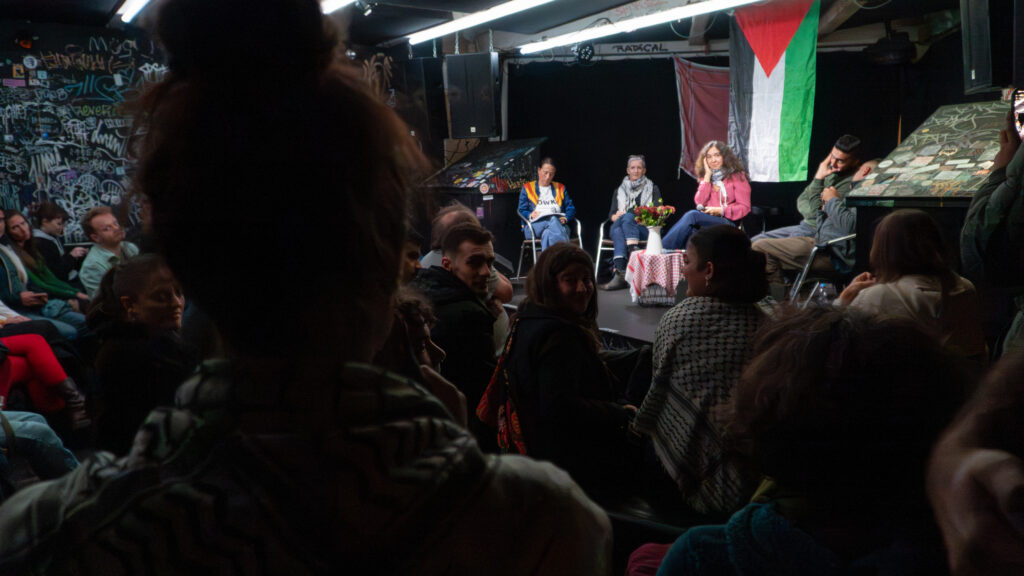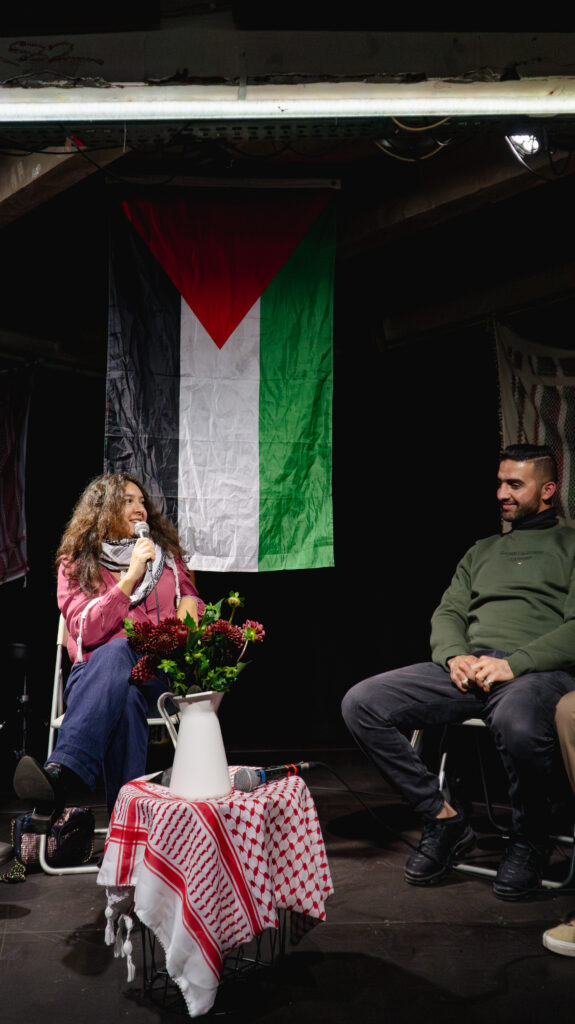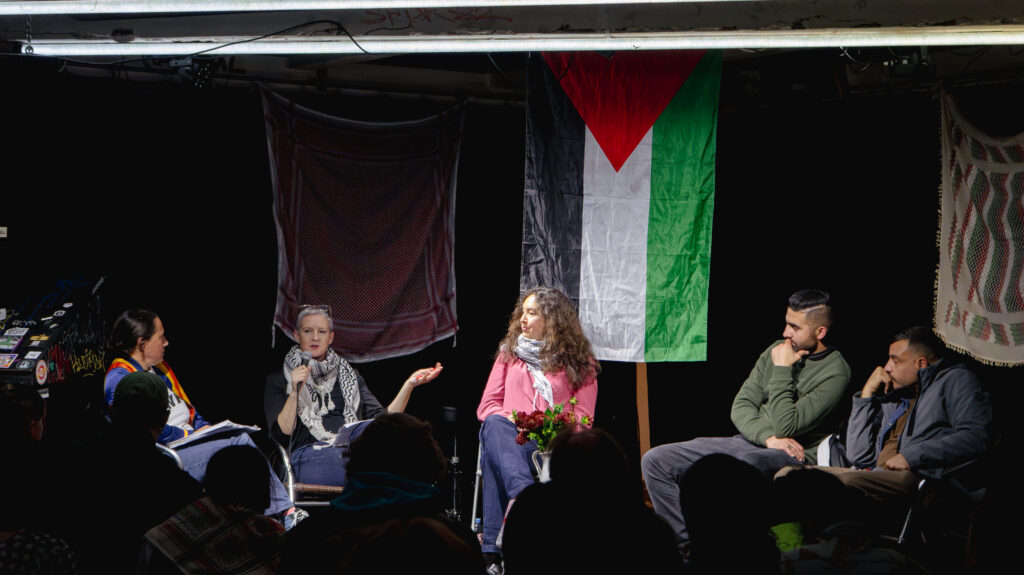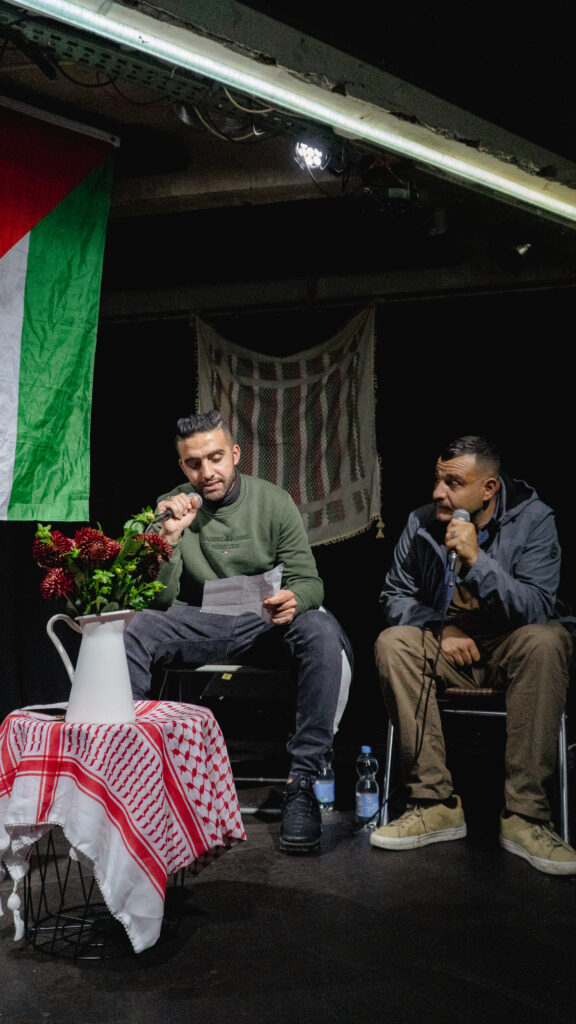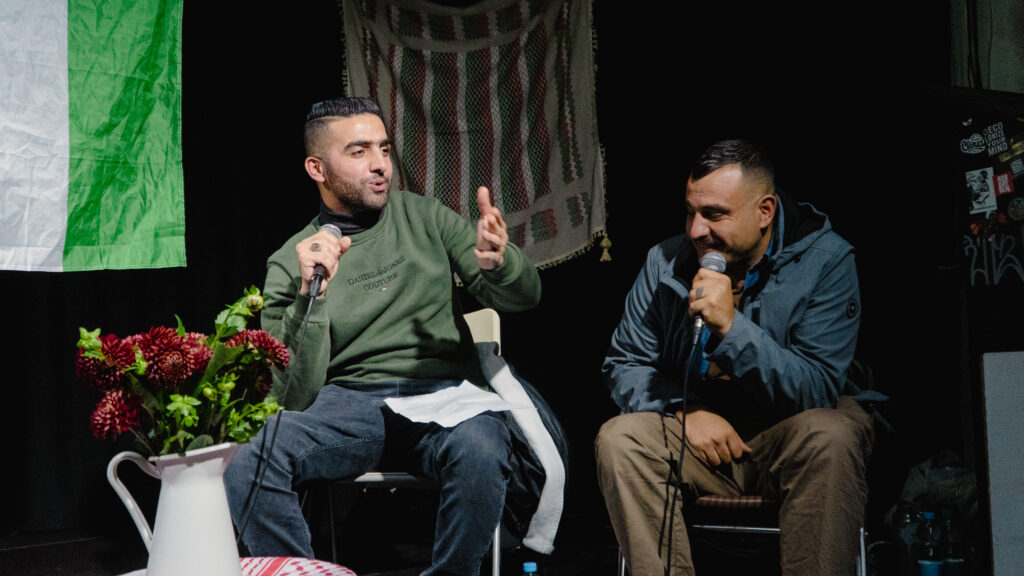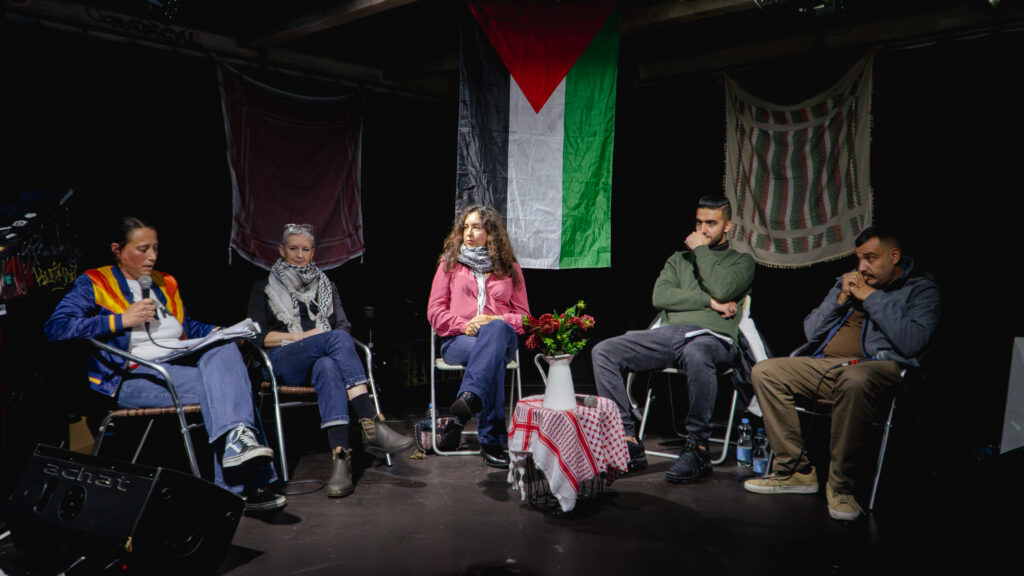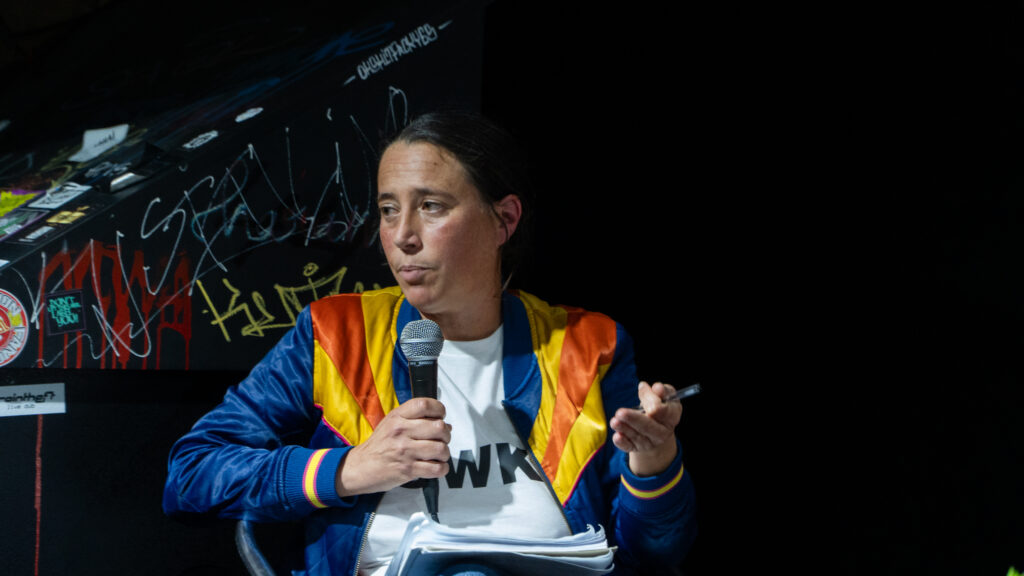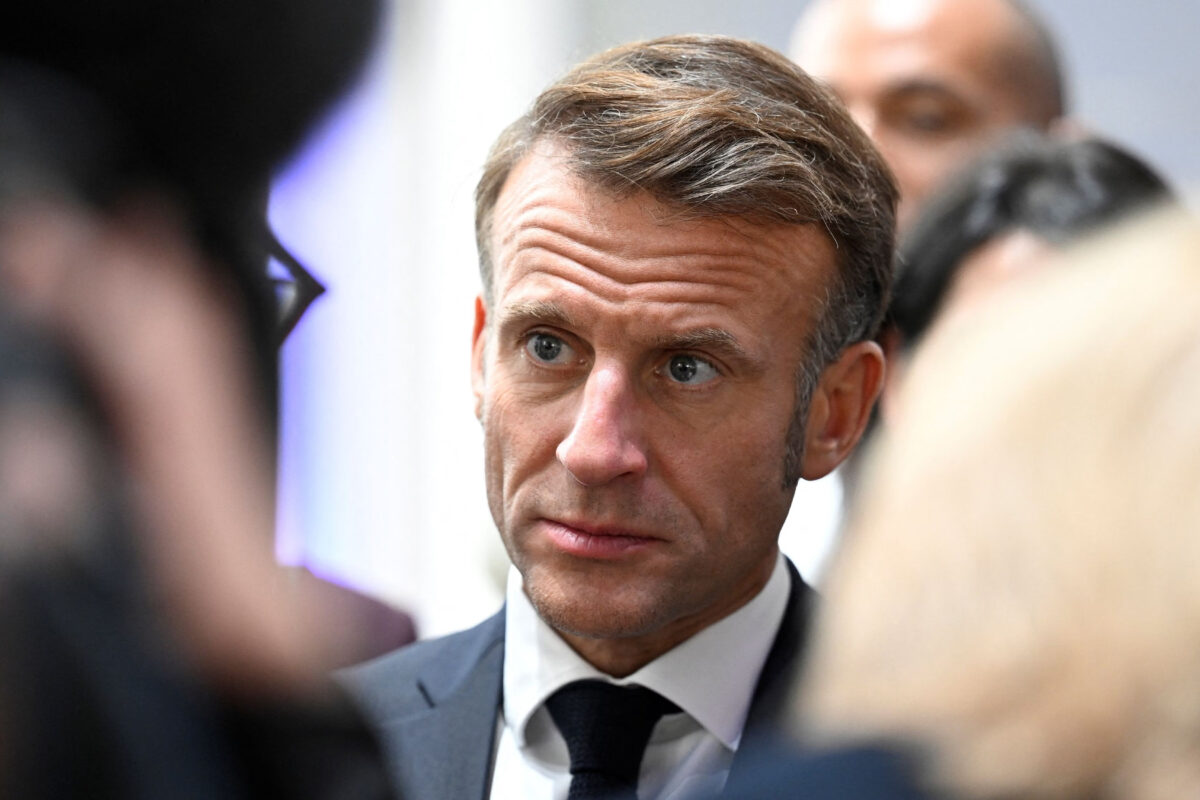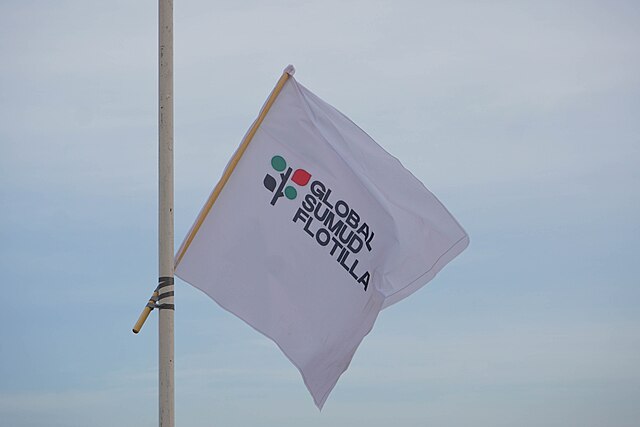Will the Trump-Netanyahu deal at least pause the mass killing of Gazans? Maybe, and Gazans have every right to celebrate. But we have repeatedly learned how brief the reprieve can be. And once Hamas releases 20 living Israeli hostages and has no further internal leverage, can anyone trust Tel Aviv, Washington and the rest of the G7’s Axis of Genocide to allow sovereignty, reconstruction and an eventual liberatory process? Since the answer is obviously not, activists must not rest now.
Last week, the South African liberation leader Nelson Mandela’s grandson Mandla and five compatriots were kidnapped from the Sumud Flotilla’s ships of life by the Israeli military and taken to Ashdod. They were attempting to deliver humanitarian aid to Gaza –Ashdod is 20km north of Ashkelon, where ships of death berth to unload coal, which goes straight into the Rutenberg power plant’s furnaces, to empower the settler-colonial, apartheid economy.
Mandela and hundreds of others from the Sumud Flotilla were then tortured in a desert jail not far from Gaza. At a press conference at his October 9 homecoming at the OR Tambo Airport, Mandela made a call that should be repeated and repeated until it is heeded:
“We will not rest until the genocide has been brought to an end. But let us enforce the resolutions undertaken by the Hague Group. We want you to read what the Hague Group has put out. They have said that all companies that are complicit must be arrested, must be prosecuted and must be dealt with. Now we call on our government. As you have been able to take the apartheid Israel to the International Court of Justice (ICJ) and International Criminal Court (ICC), we call on you to arrest all those that are complicit in fueling the genocide and selling coal to apartheid Israel. We call on the government with immediate effect to stop any coal that is being exported to apartheid Israel. We call on the government to ensure that all those that have participated in the genocide in apartheid Israel that have enabled the IOF to carry on its genocide and systematic ethnic cleansing of Palestinians to be arrested and prosecuted.”
Mandela’s mandate must be taken seriously by local and international solidarity activists. For realistically, without much more intense pressure from all of us, we don’t expect South Africa’s (SA) President Cyril Ramaphosa to arrest the main Johannesburg residents complicit in coal sales to Israel., That is, his brother-in-law Patrice Motsepe of African Rainbow Minerals (whose co-owned Glencore coal mine has been shamelessly fuelling Israel since 2007); or Glencore senior independent director Gill Marcus( once Nelson Mandela’s spokesperson); or Swiss resident Gary Nagle, Glencore chief executive.
Ramaphosa himself was Glencore’s main partner in coal digging, before he became Deputy President in 2014. He helped the firm triple the price Eskom paid in the Eskom ‘War Room’ he ran in 2014-15, in very dubious ways.
Relentless ships of death sail from SA
Ramaphosa won’t even halt the coal ships now on their way to empower Israel, including the Seafighter docking on October 10 at the main coal terminal, Richards Bay, en route undoubtedly to Ashkelon. Last week, another ship arrived in Ashkelon with South African fuel for Rutenberg on 1 October: Ernandin. And another, Navios Felix, is three weeks away from unloading more South African coal.
All carry 170,000 tonnes or more, and this supply allows the Israel Electric Corporation to generate nearly a fifth of the grid power used to oppress Palestine. Currently coal costs $83/tonne , so Glencore gains net profits of just $13 for each sold, due to $70/tonne production costs. But each tonne burned creates 2.6 tonnes of CO2 emissions. So these ships fuel both Israel’s genocide and climate crisis.
Indeed, at a ‘Social Cost of Carbon‘ of $1500/tonne, burning a typical large load causes $663 million in climate damage . Since the genocide began, the 22 ships carrying an average of 100,000 tonnes of South African coal each, resulted in CO2 emissions responsible for nearly $6 billion in future damage. The ICJ recently ruled these costs should be compensated for, as climate debt liabilities,.
Meanwhile, at current prices, Glencore’s profits are only $2 million for each 170,000 tonne load. Of that its Black Economic Empowerment partner Motsepe gets 23% of that, just i$470,000 per large shipload.
The SA government still fails to impose a meaningful carbon tax against coal mining and combustion; it’s only $0.40/tonne. If local activists can increase the costs to these firms, such trivial benefits will not be lucrative enough to continue thistravesty.
The SA Boycott Divestment Sanctions (BDS) Coalition holds regular pickets, including last Monday, at Glencore’s Johannesburg office, the largest source of the firm’s capital. Its stock market listing here is s one third larger than its London primary listing.
Protesters also traveled from Durban to Richards Bay Coal Terminal on September 24. And other Palestine activists have demonstrated en masse outside the South African trade ministry’s offices in Pretoria, Durban and Cape Town on August 21; at the Glencore office on May 28 and on August 22, 2024; as well as at Motsepe’s office on April 5.
International embarrassment is an important factor. As the Palestine Youth Movement argued in June:
“In addition to supporting settlement and military infrastructure, this energy supply also powers Israel’s complex artificial intelligence systems used to surveil and track the activities of all Palestinians in Gaza… Cutting South African coal supplies would have a tangible impact on Israel’s ability to sustain its war on Gaza – a measure that aligns with South Africa’s duty to employ all available means to prevent genocide.”
‘Hague Shmague’
The Hague Group promoted by Mandela is an encouraging initiative, though needs an accountability system. The group, founded on January 31, has a Progressive International secretariat.Itspledge that day was to “prevent the docking of vessels at any port… where there is a clear risk of the vessel being used to carry military fuel and weaponry to Israel.”
And on July 16, an emergency Hague Group meeting in Bogota passed a resolution committing that the eight signatory states – co-chaired by SA and Colombia – must:
“Prevent the provision or transfer of arms, munitions, military fuel, related military equipment, and dual-use items to Israel… Prevent the transit, docking, and servicing of vessels at any port…. in all cases where there is a clear risk of the vessel being used to carry arms, munitions, military fuel, related military equipment, and dual-use items to Israel.”
Hague Group co-leader Gustavo Petro first tried to stop Glencore and Alabama-based Drummond exporting coal from Colombia in mid-2024. But at the Bogota meeting in July, he explained how his own country’s ‘white’ state officials had so far sabotaged his efforts, so he decisively prohibited exports the following month. That makes South Africa by far the lead coal supplier to Israel today.
Considerable anti-genocide rhetoric emanates from Pretoria’s, Ramaphosa and Ministers Parks Tau (trade), Barbara Creecy (transport), Dion George (environment), Ronald Lamola (international relations), Kgosientsho Ramokgopa (energy), Gwede Mantashe (minerals), and Enoch Godongwana (finance). Notwithstanding,all ignore their duties to stop the coal exports. They probably mutter two ghastly words we first heard from Tel Aviv after the ICJ ruled on the plausibility of genocide on 24 January 2024: “Hague Shmague.”
In SA’s Parliament on September 26 2024, Tau replied to a small party (Al Jama-ah) regarding “mounting calls from social justice activists to stop trading coal with Israel.” Defending coal supplies to the genocidaires, Tau insisted: “Sanctions applied by one member against another in the absence of multilateral sanctions by the United Nations, would violate the World Trade Organisation principle of non-discrimination and would open the country to legal challenge.”
Tau’s specious argument ignores widespread violations of WTO anti-tariff provisions by many governments, especially the U.S. He refuses to regulate a dangerous export, a tool commonly used by other trade ministers. Dangerous it is: combustion of coal is the main cause of the climate crisis, as well as of local mines’ deadly local pollution and degradation of land, air and water.
As the world’s largest commodity trader, Switzerland-based Glencore offers no apologies or rationale for fueling Israeli genocide and apartheid. In May 2024, at Glencore’s Annual General Meeting in Switzerland, a shareholder asked whether the firm is “conducting human rights assessments on the use of the coal you’re exporting to Israel to ensure that you’re not held liable”?
Board Chairman Kalidas Madhavpeddi replied, “The company supplies to many countries around the world and it’s almost impossible to tell you the answer to your question.” The shareholder followed up, “So you don’t check how the coal is being used?” Madhavpeddi replied: “Coal is used in power generation, that’s simple.”
The two Johannesburg-born Glencore directors at the AGM – Nagle and Marcus – were notably silent during the questioning. Nagle was formerly in charge of Glencore’s coal operations. Marcus was also Deputy Finance Minister, chair of ABSA Bank and Governor of the SA Reserve Bank and having served Glencore since 2018, she is the firm’s highest-ranking non-executive director.
The ceasefire deal’s many downsides
It’s likely this pause in the genocide will be understood, like the one earlier this year, as a short-term ruse so that Trump could pretend he had a shot at the Nobel Peace Prize, which was announced on October 10 (even though he had missed the 31 January nomination deadline). There are many flaws in the dirty deal, according to David Hearst of Middle East Eye:
- There is no guarantee they have stopped ethnic cleansing and genocide; under this agreement, Israeli forces are not leaving the strip, and Netanyahu is the one who decides how quickly and how much of Gaza his forces hand over to the proposed International Stabilisation Force (ISF). Netanyahu is also free to decide how much aid and reconstruction materials to send in. There is no timetable for such a withdrawal.
- There is every guarantee that this postwar plan will stifle at birth Gaza reemerging under a Palestinian leadership of any kind. Under this plan, there is no role for any Palestinian leadership in the rebuilding of Gaza. Gaza is definitively split from the Occupied West Bank by this agreement and all thoughts of joining the two have been jettisoned.
- The Palestinian Authority (PA) fares no better than Hamas or other factions. Already disarmed, the PA has to go further. According to Netanyahu’s remarks at the joint press conference, the PA has to drop its cases against Israel at the International Criminal Court (and the International Court of Justice); it has to stop paying the families of slain fighters; change the school curriculum and tame the media. And only then Israel will see.
- None of the eight leaders, prime ministers or foreign ministers of Turkey, Qatar, Saudi Arabia, the UAE, Jordan, Egypt, Indonesia and Pakistan consulted the Palestinians before agreeing to this plan. Just as the Palestinians have no agency in the authority that is about to be imposed on them in Gaza, they have had no say in devising a postwar plan.
So any solidarity activist who relaxes now is not taking these factors seriously. And even if the genocide is paused, apartheid continues in the West Bank. Hence the ICJ ruling (in July 2024) that states must halt “aid or assistance in maintaining the situation created by Israel’s illegal presence in the Occupied Palestinian Territory” (OPT) continues to be violated. In September 2024, the United Nations General Assembly voted (124 for, 14 against) for states to “prevent trade or investment relations that assist in the maintenance of the illegal situation” in the OPT.
Could BDS help end the genocide and other Israeli Defence Forces (IDF) attacks? A similar vulnerability occurred within SA’s own apartheid system forty years ago, in September 1985: financial sanctions caused such a squeeze that President PW Botha declared a debt default, imposed exchange controls and shut the stock market. Business leaders’ furious response included an urgent visit to Zambia to meet exiled African National Congress leaders.
South African whites fearful of further meltdown accepted ‘one person, one vote’ democracy in 1994. Because anti-apartheid sanctions had split white business away from the racist government, it had the most powerful, external, non-violent impact on ending this crime against humanity. (And U.S.-based General Motors even paid reparations for earnings in apartheid SA, as should Glencore-Motsepe for profits from Israeli-bound coal.)
The merits of SA’s own BDS success against racial apartheid forty years ago, and Pretoria’s January 2024 ICJ case against genocide, can never be forgotten. But the importance of the period ahead, is never to forget nor forgive genocide and apartheid profiteering, here in our wretched coal fields, or anywhere else.
